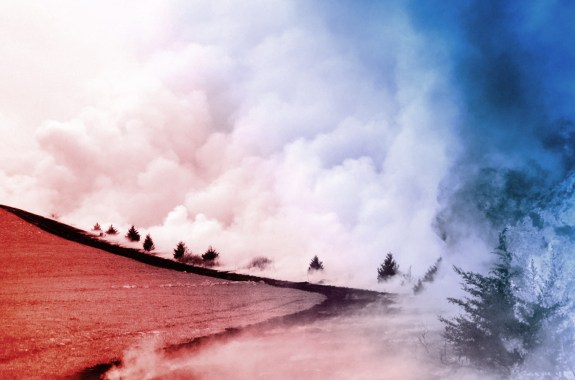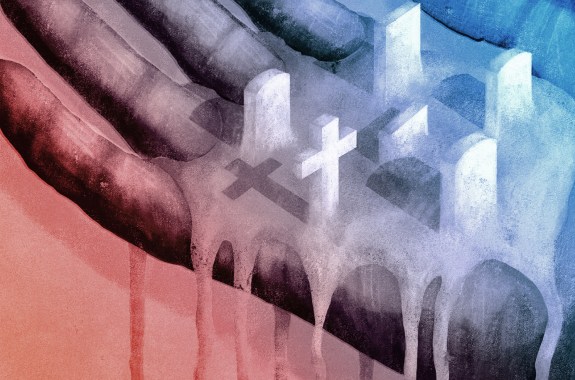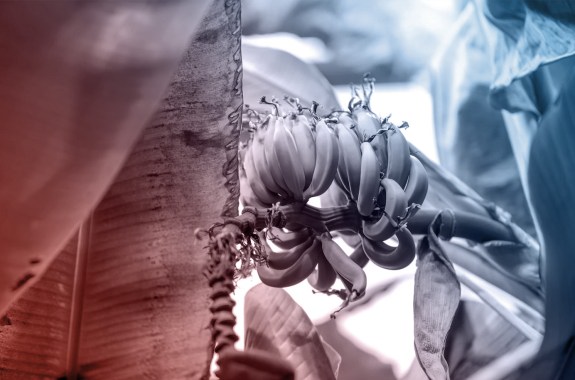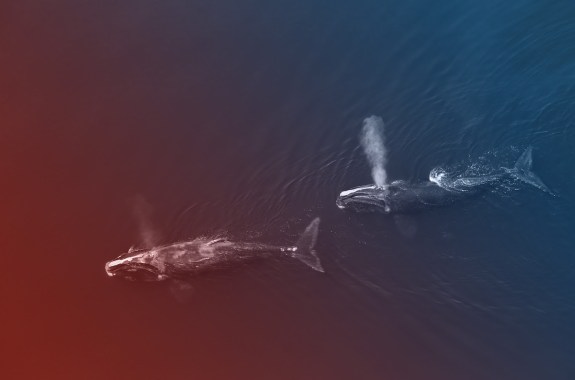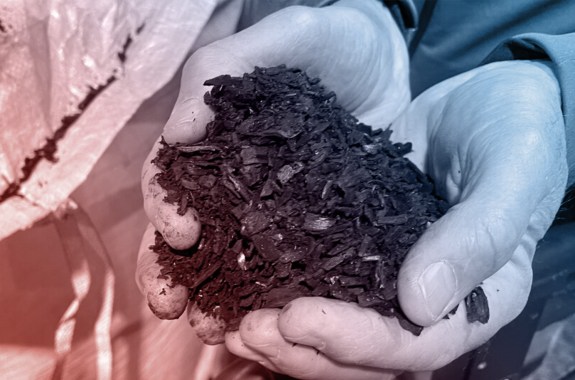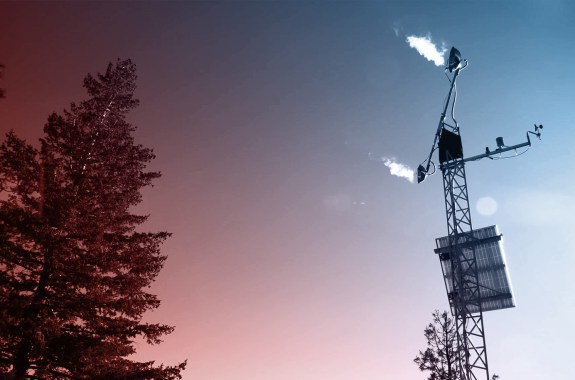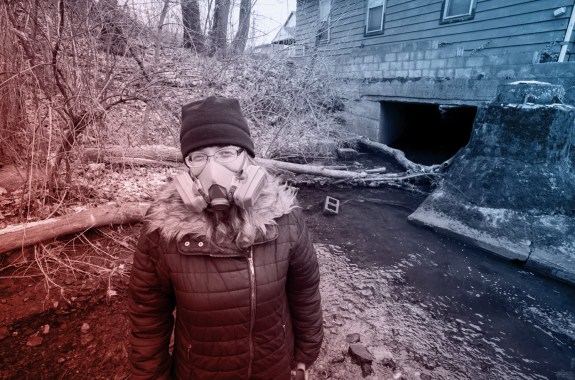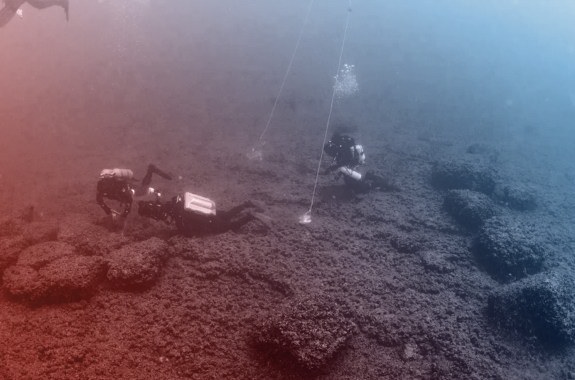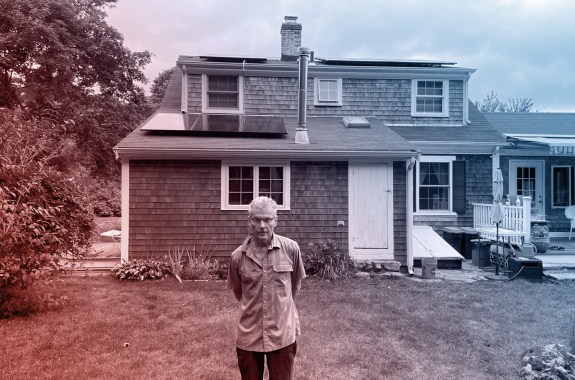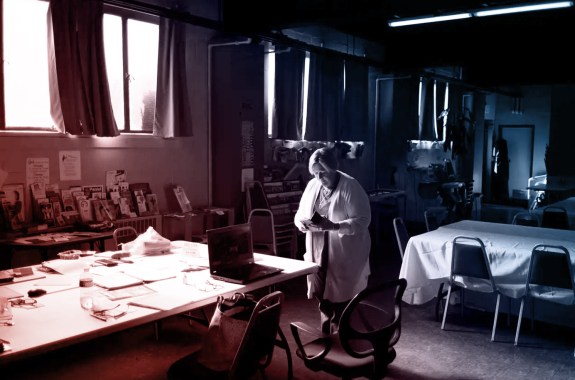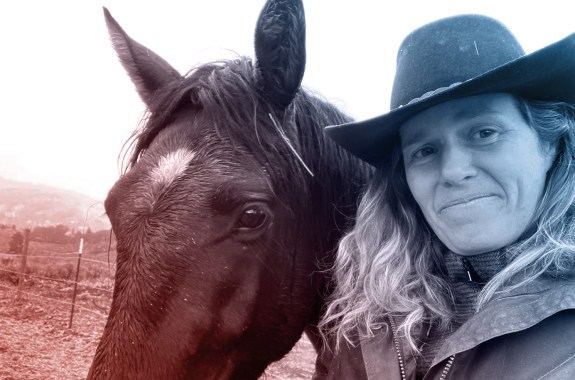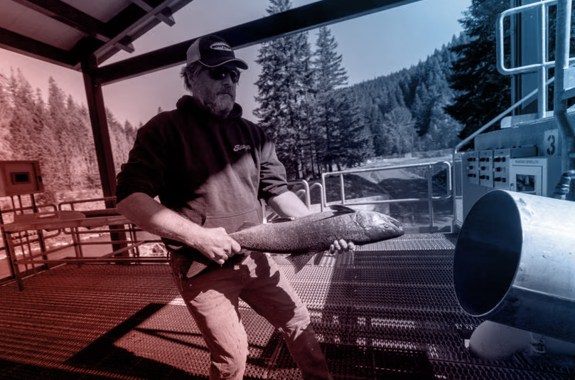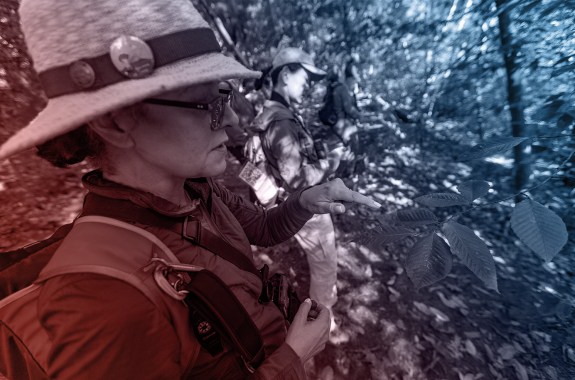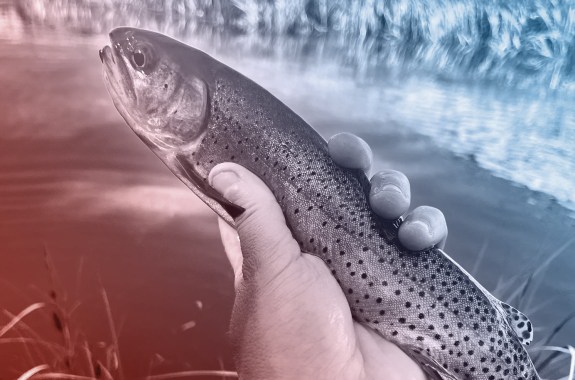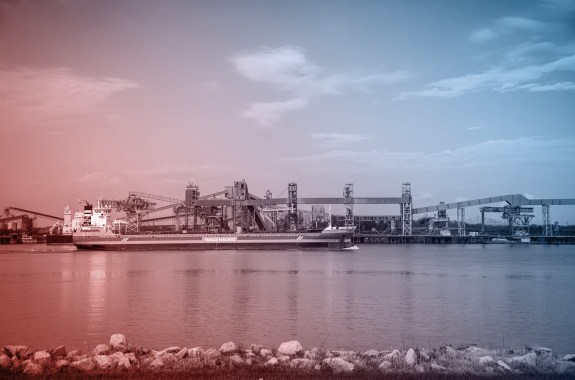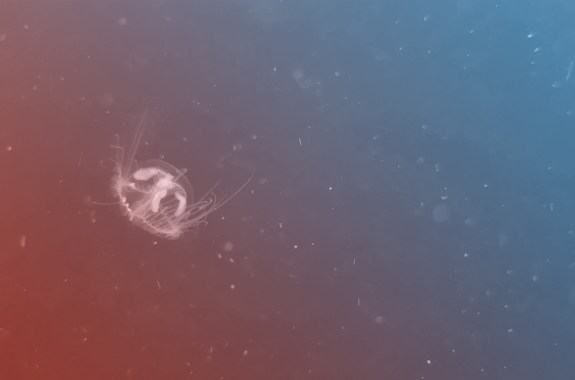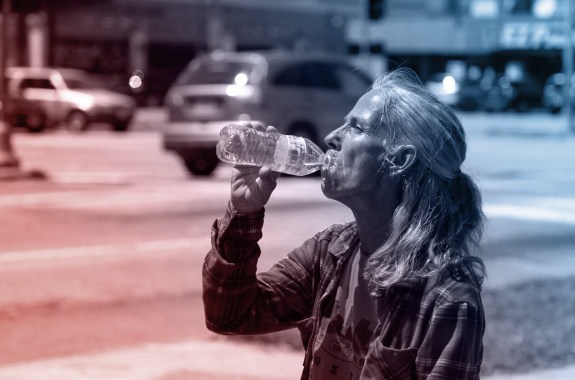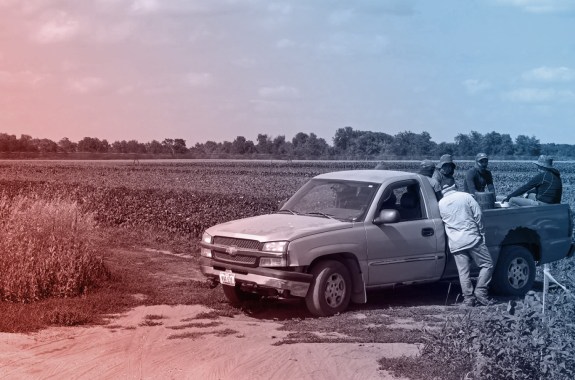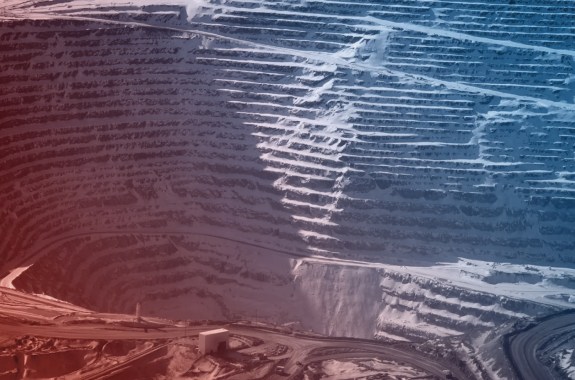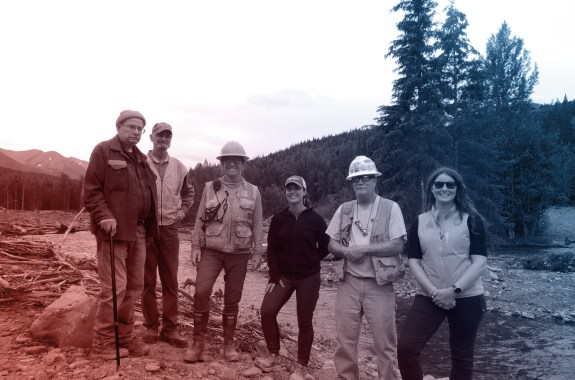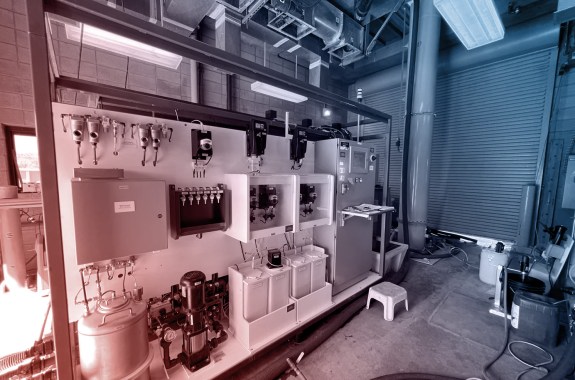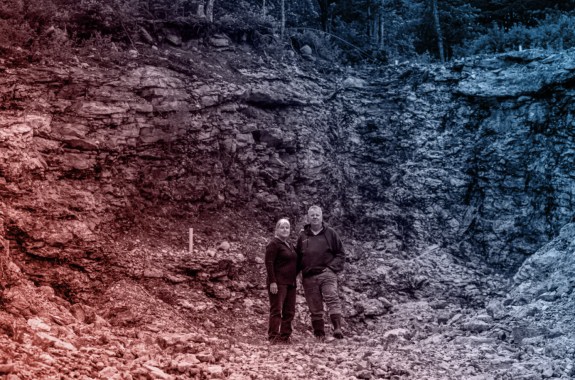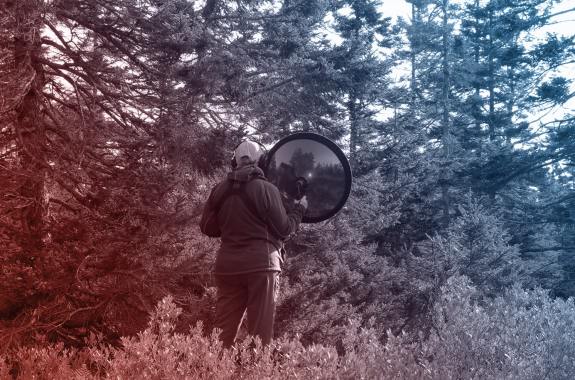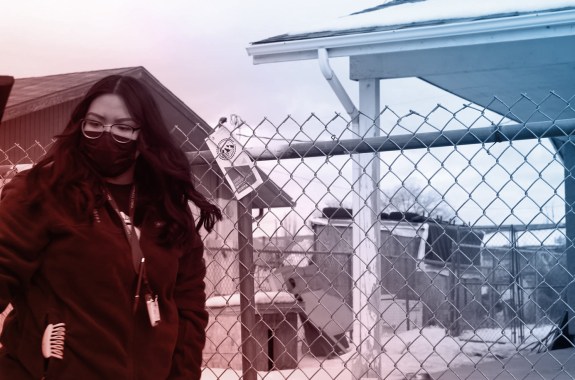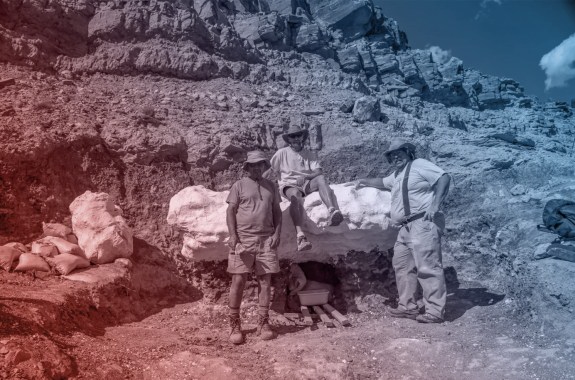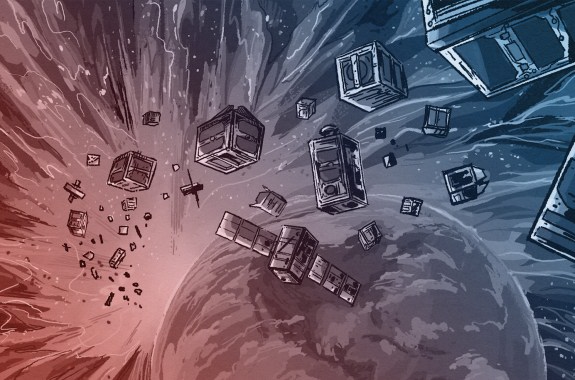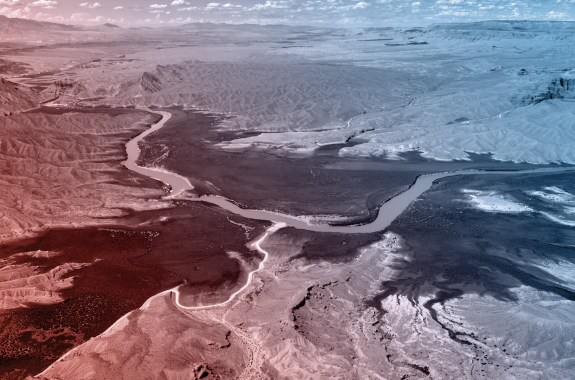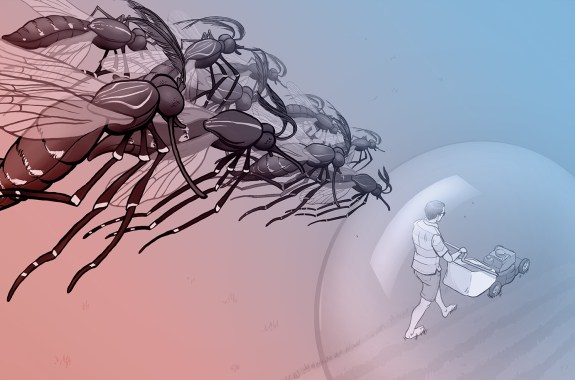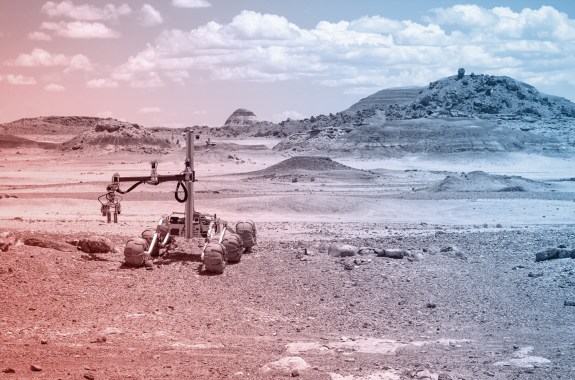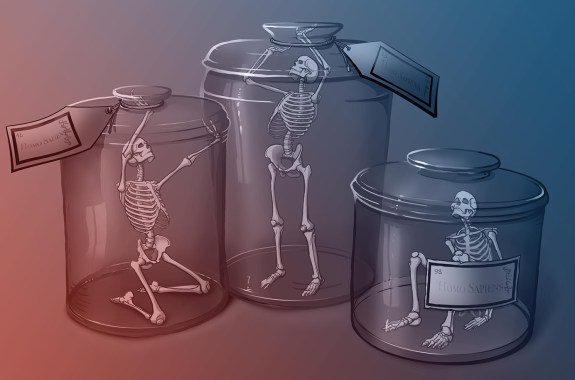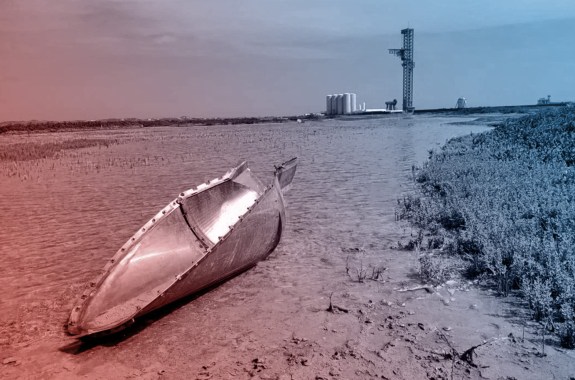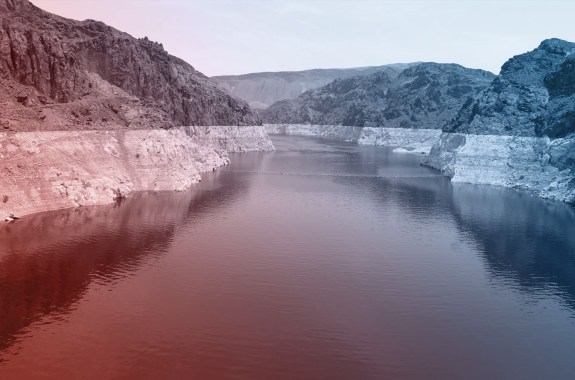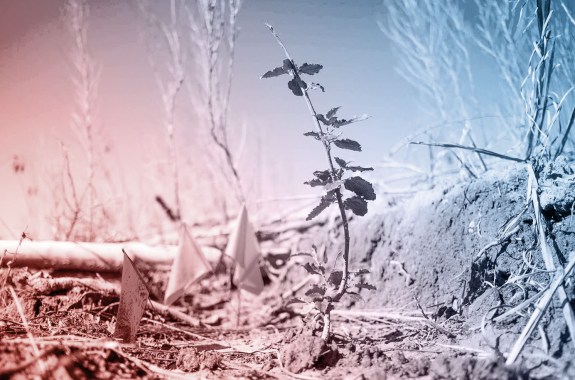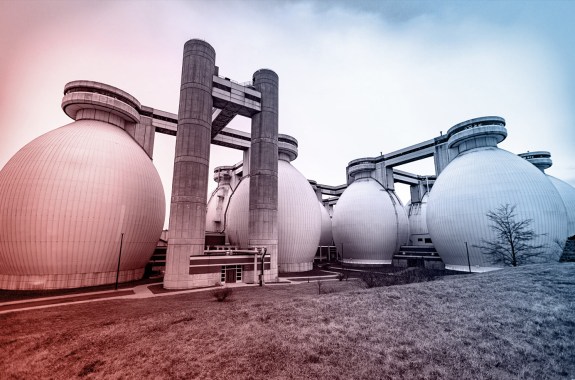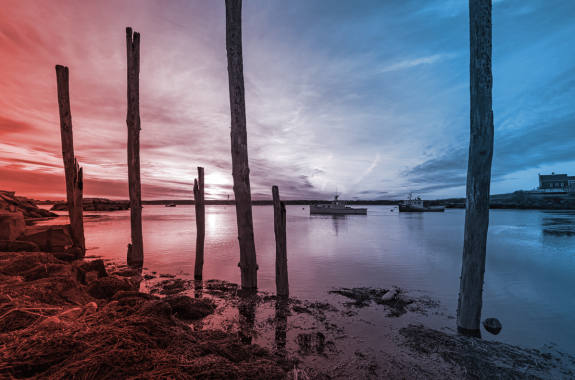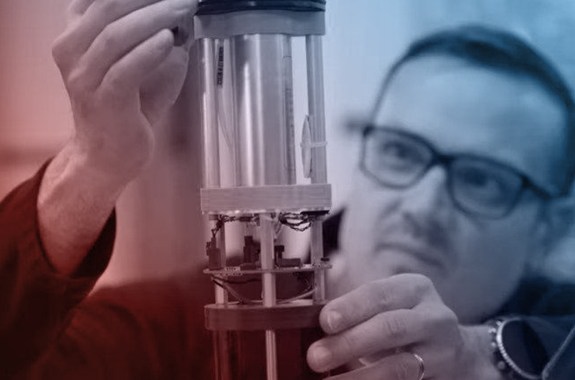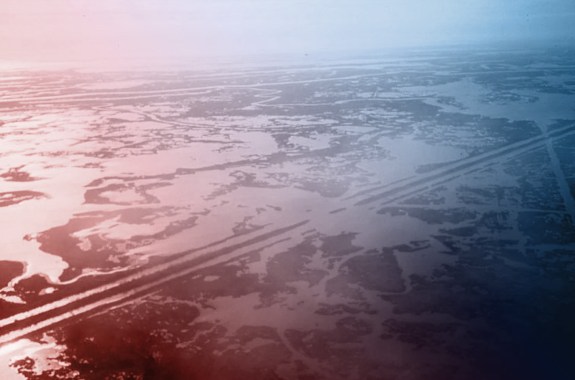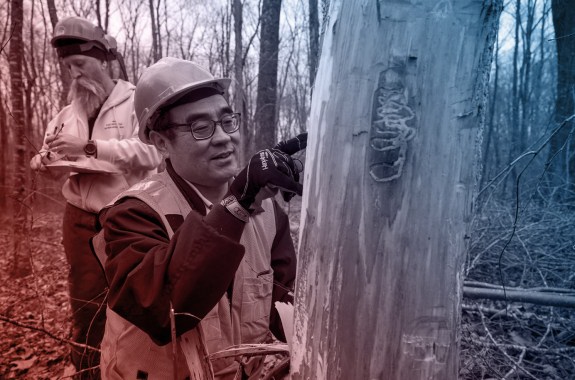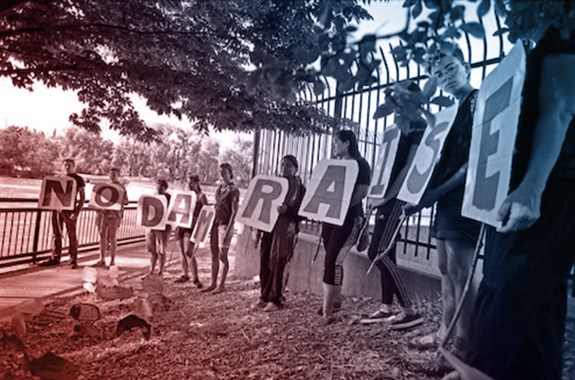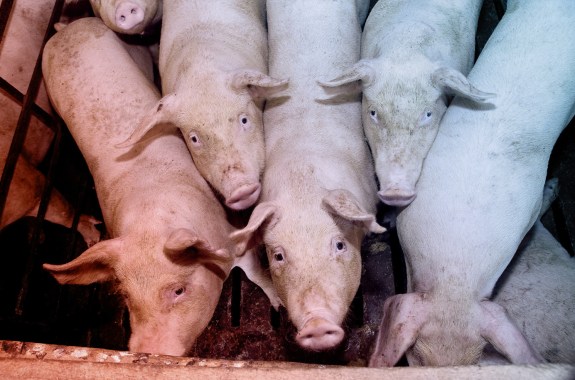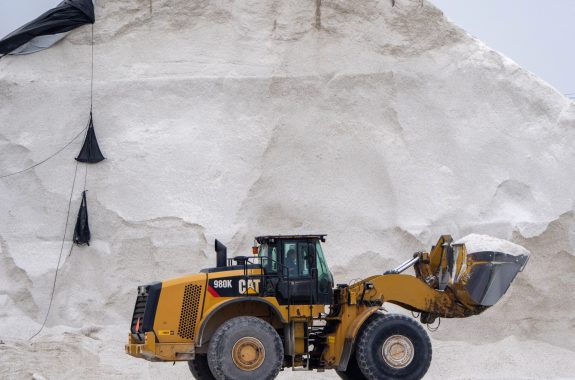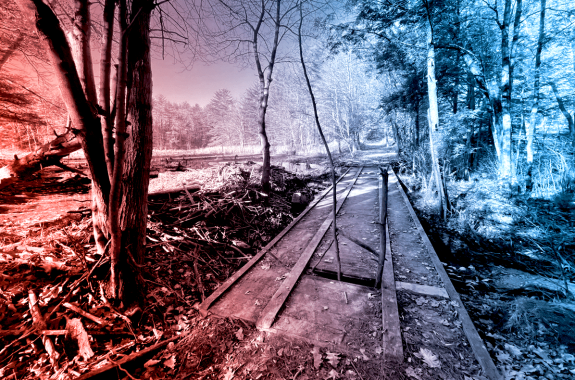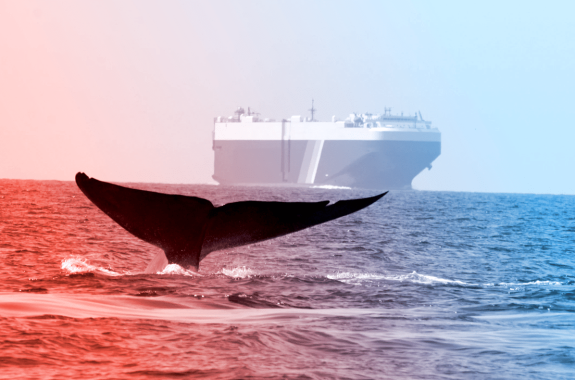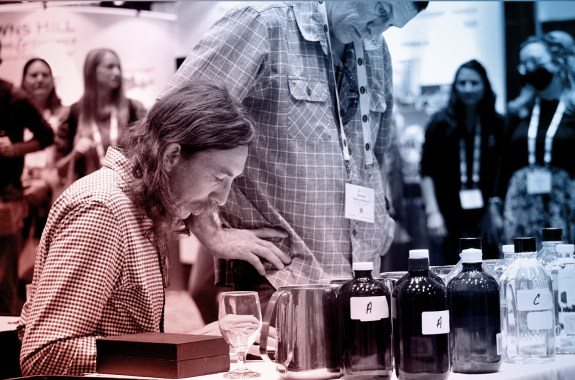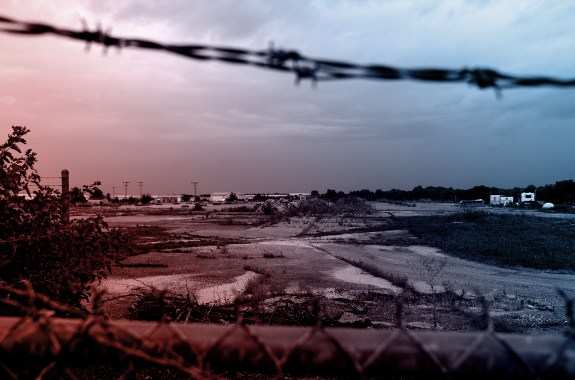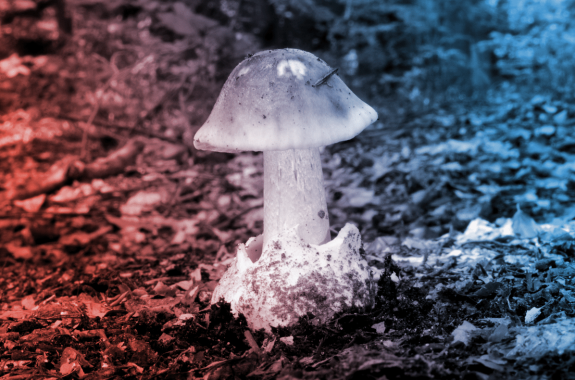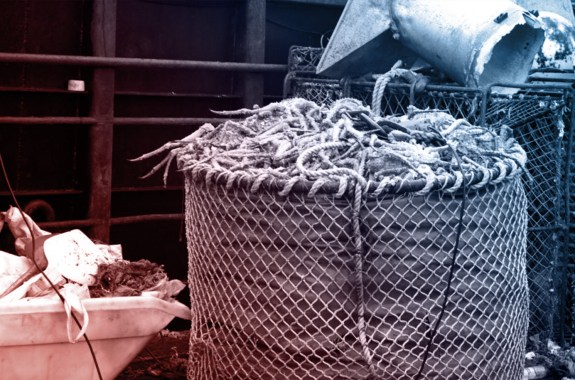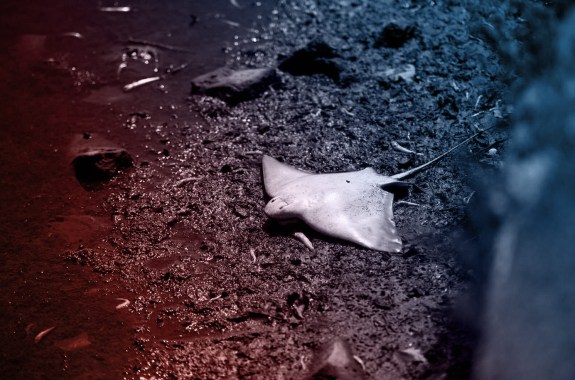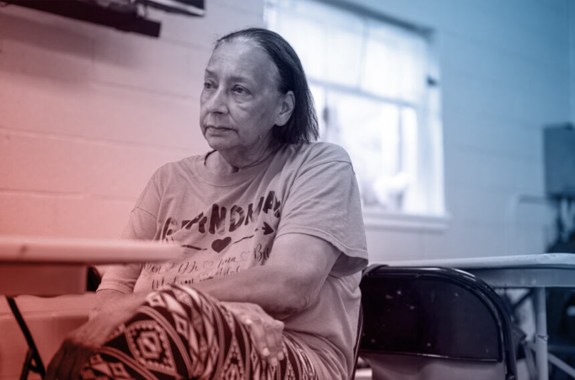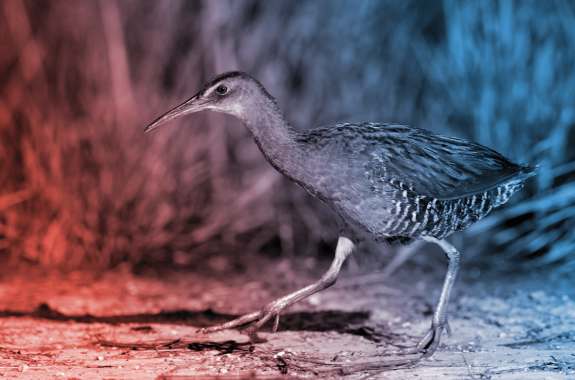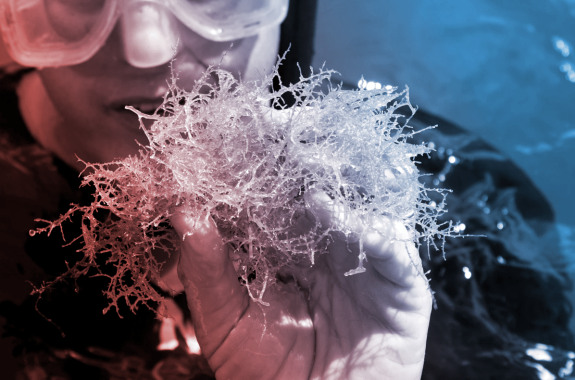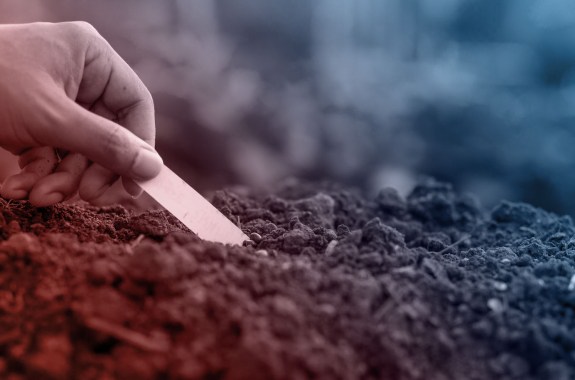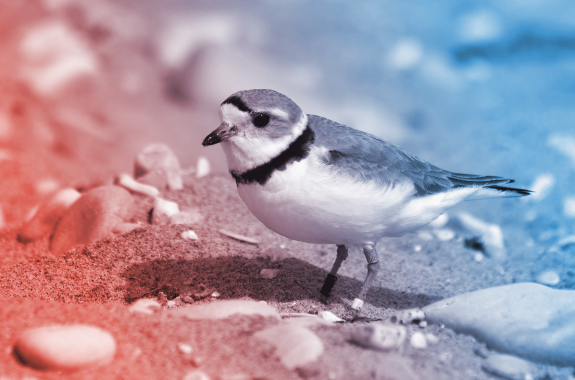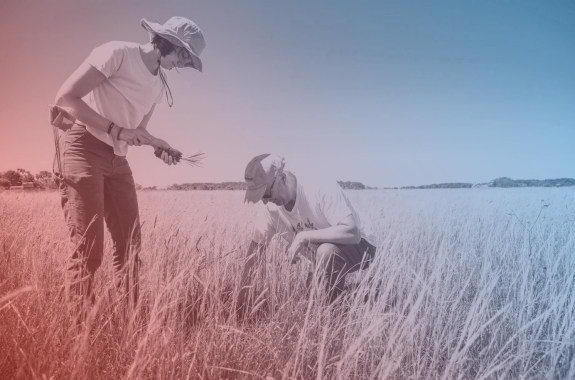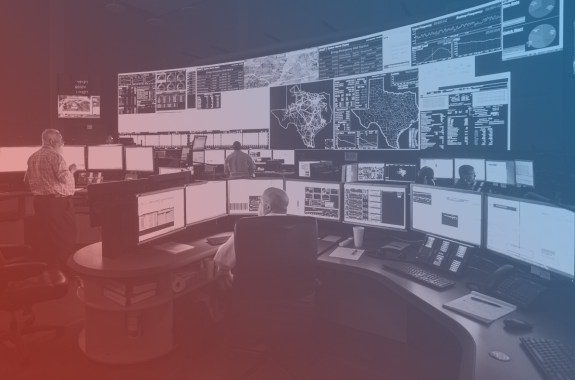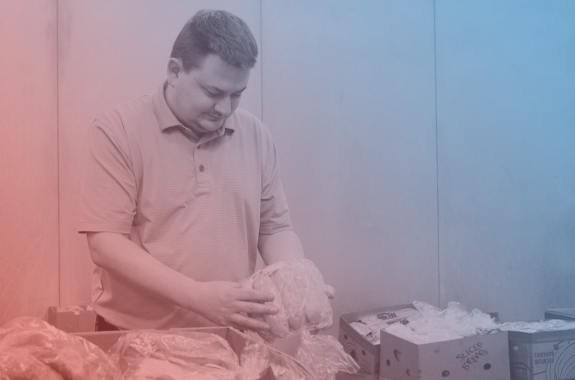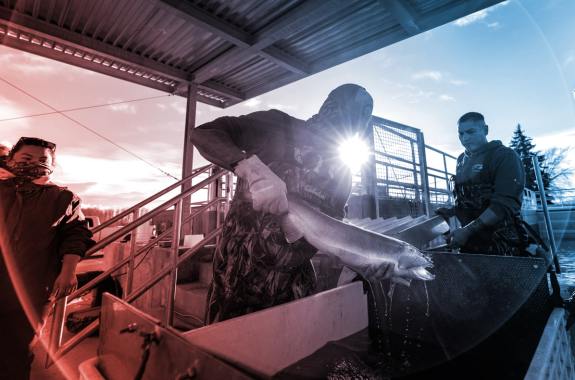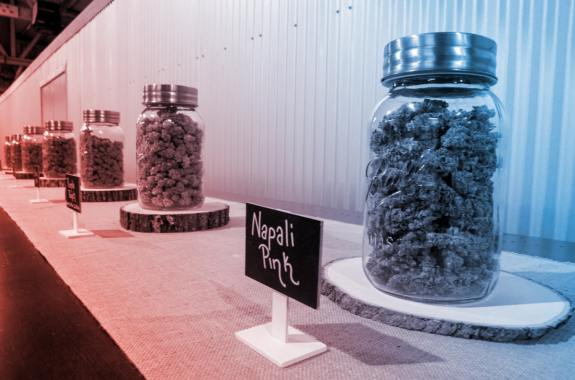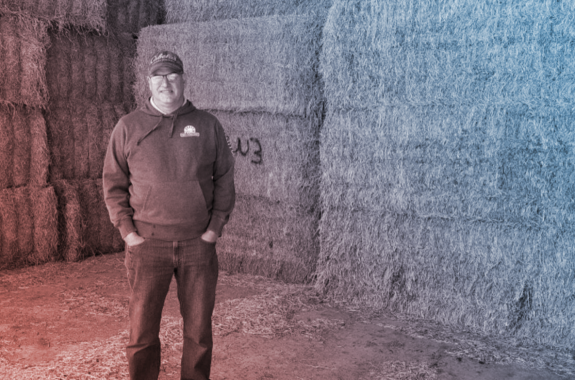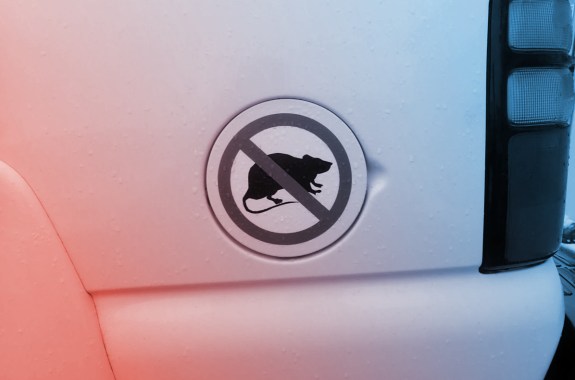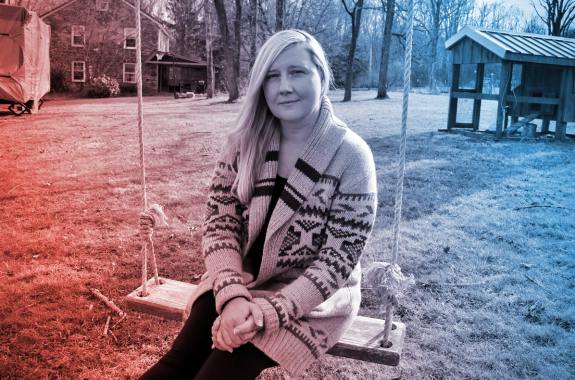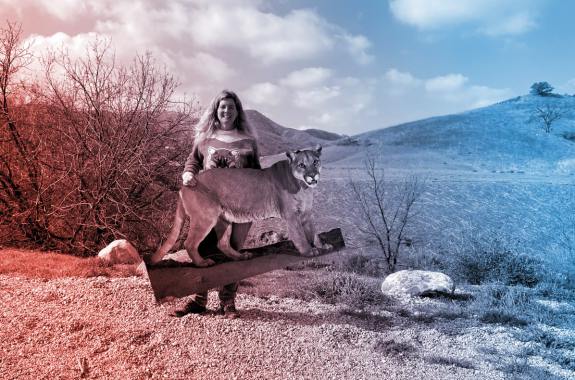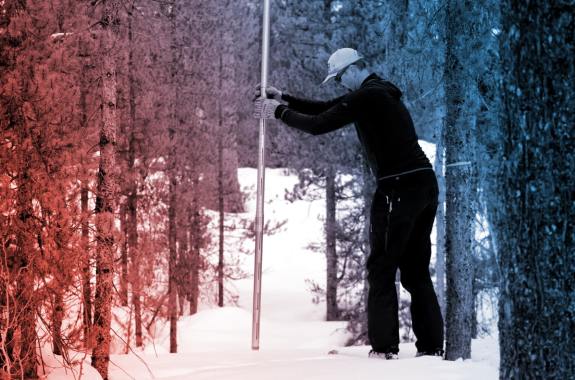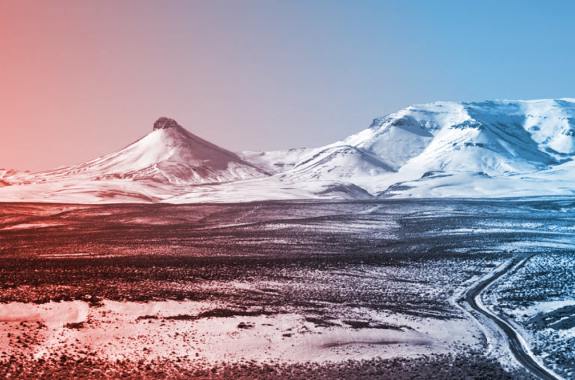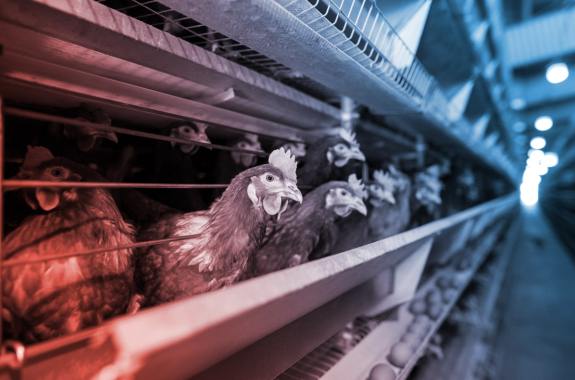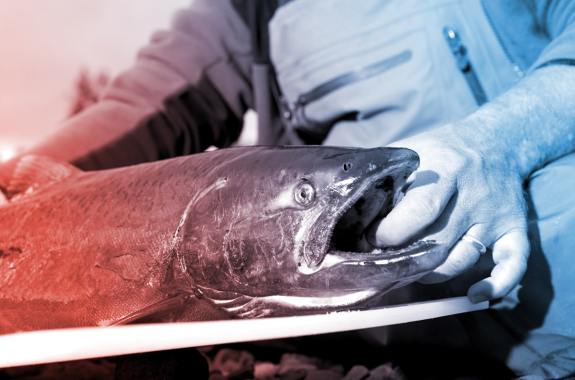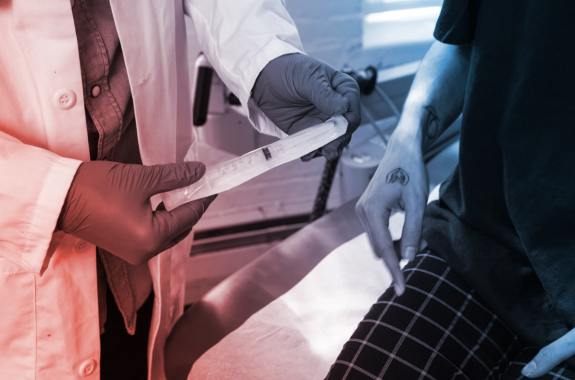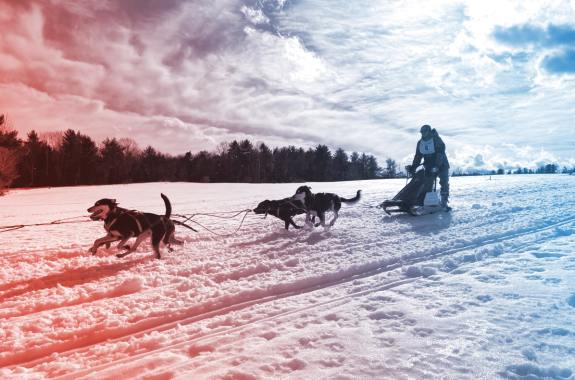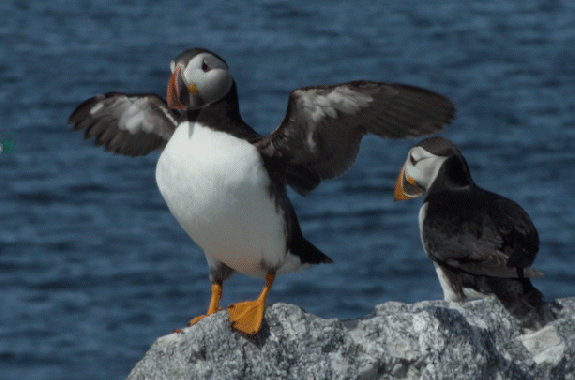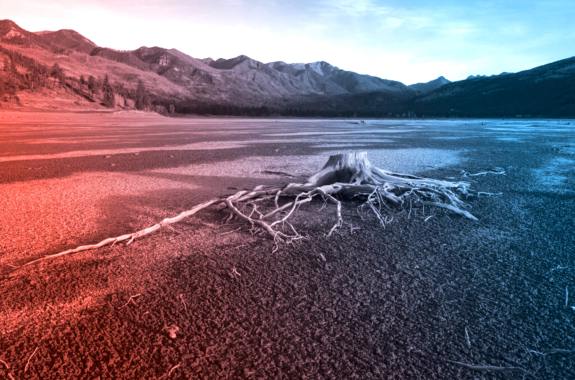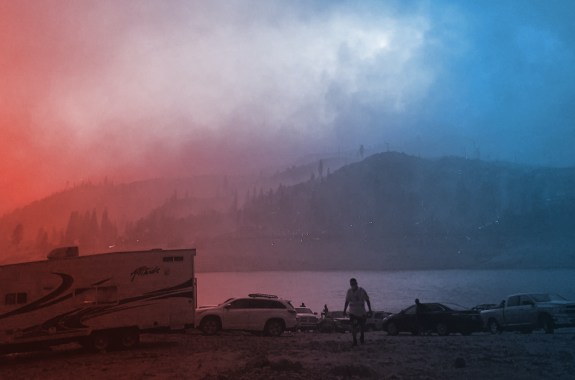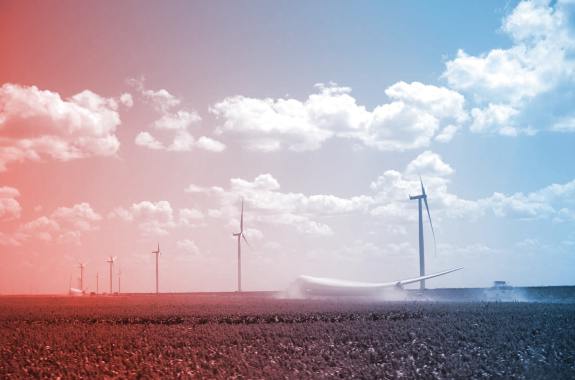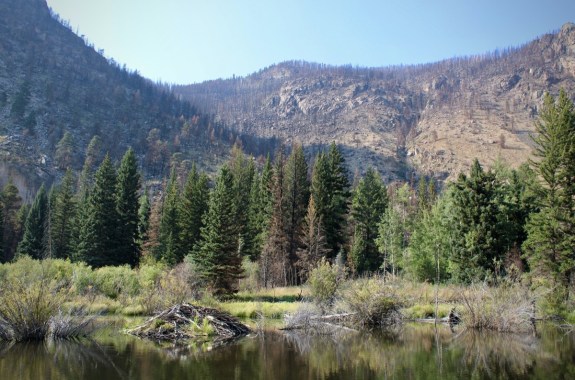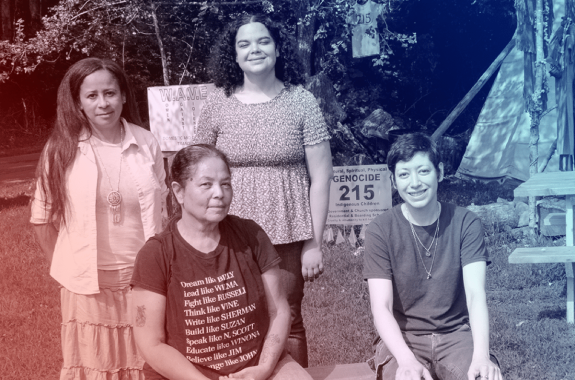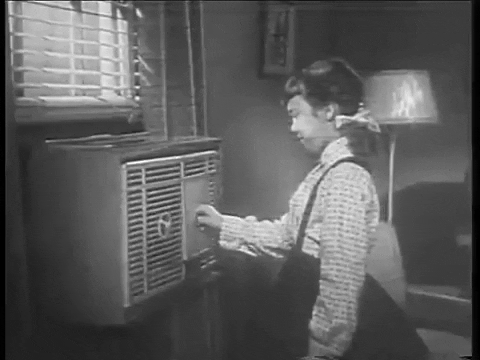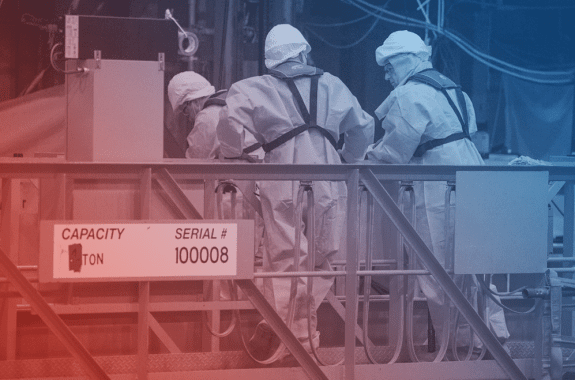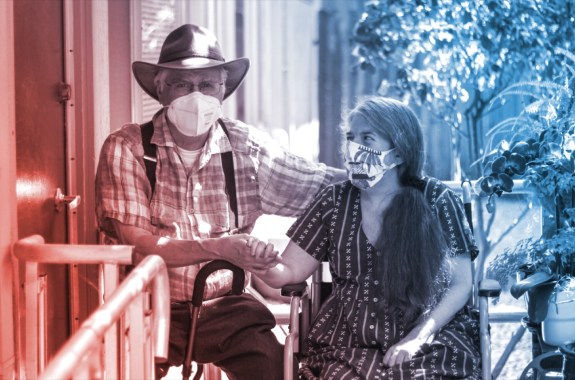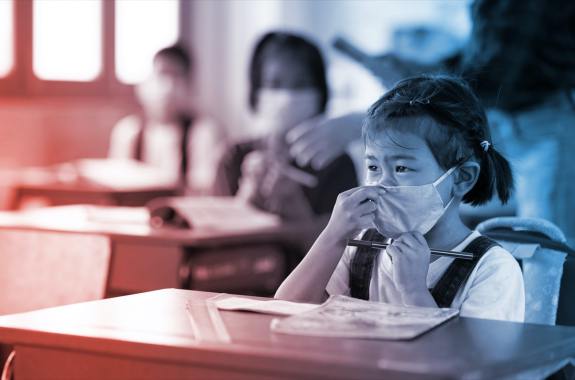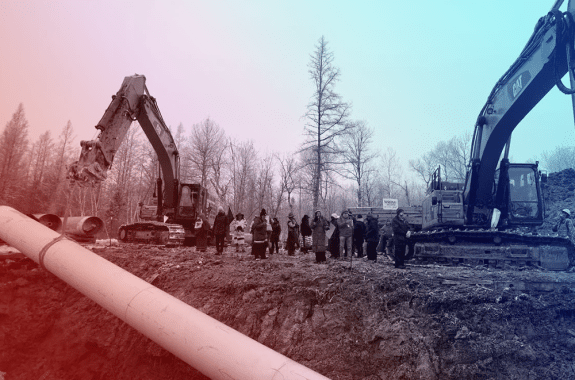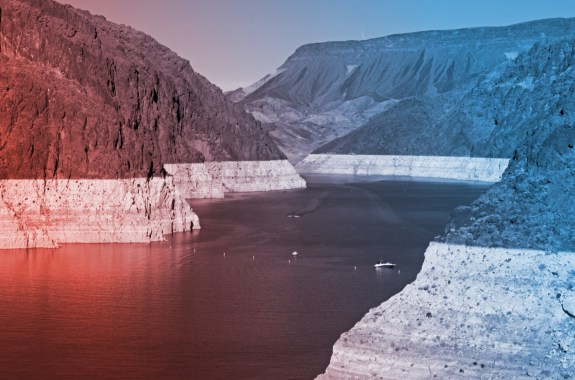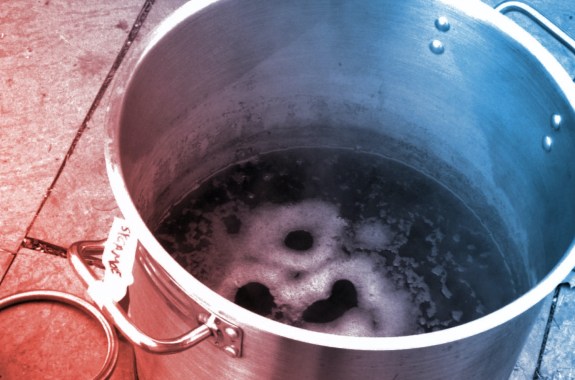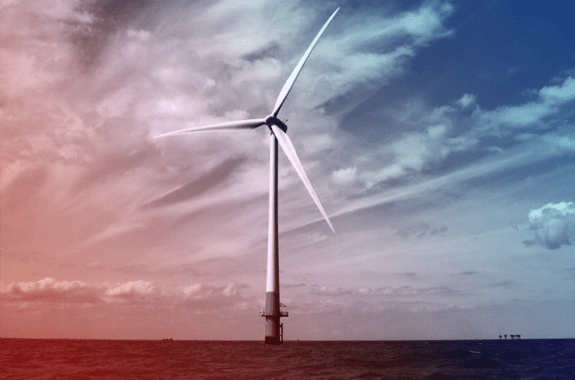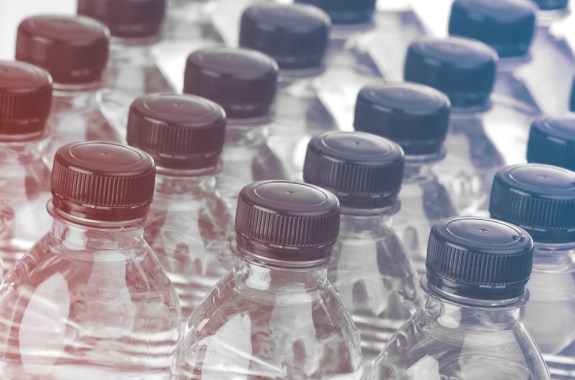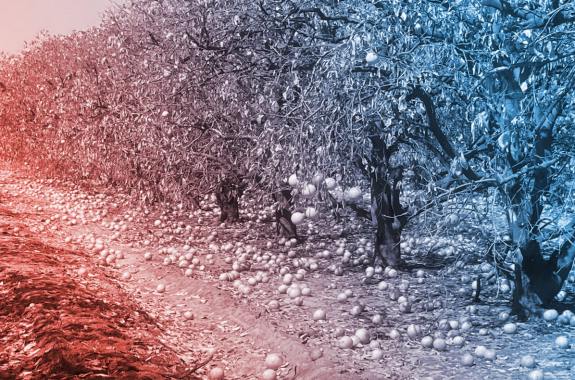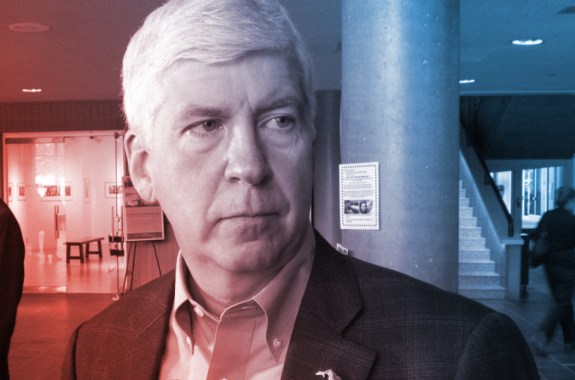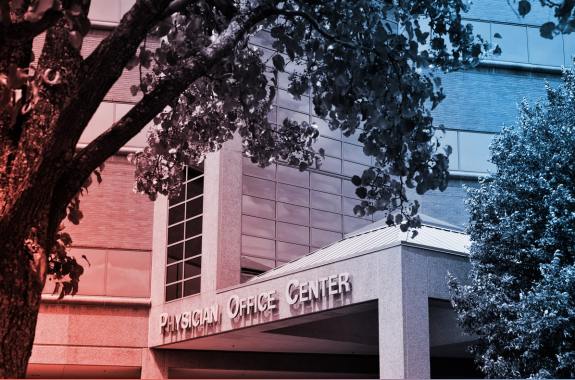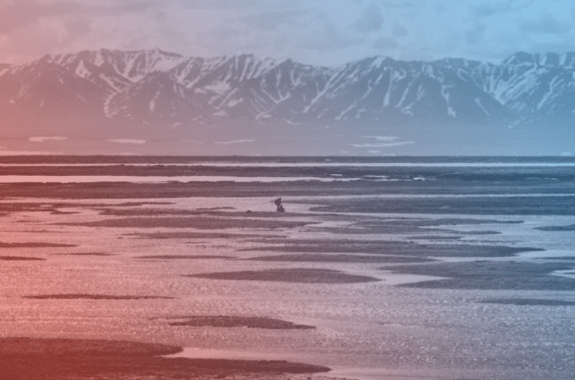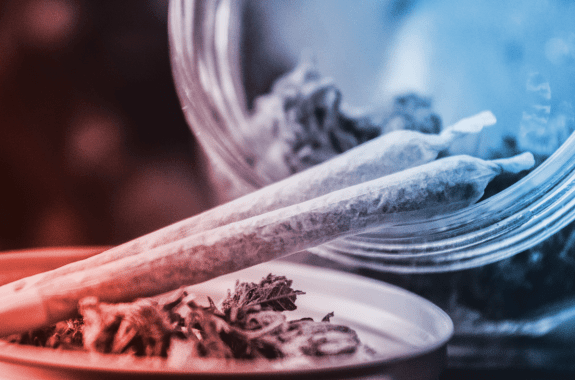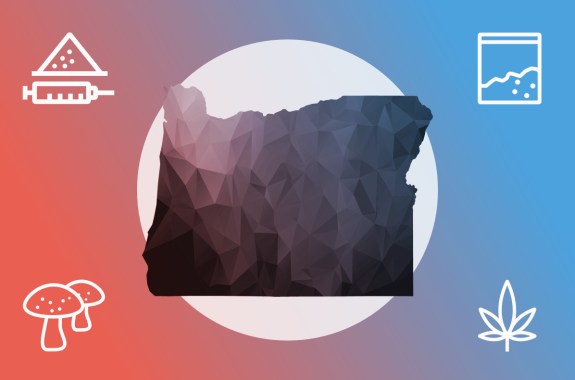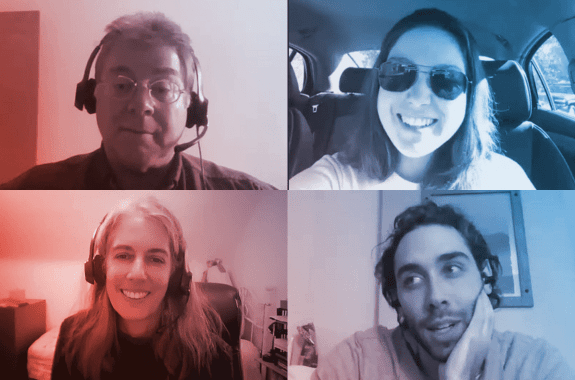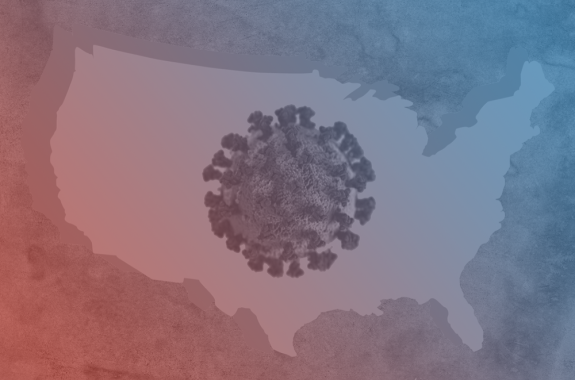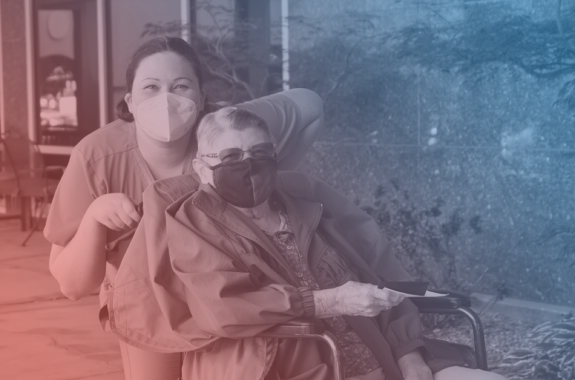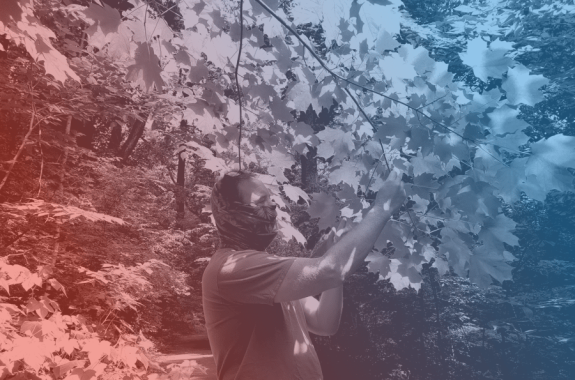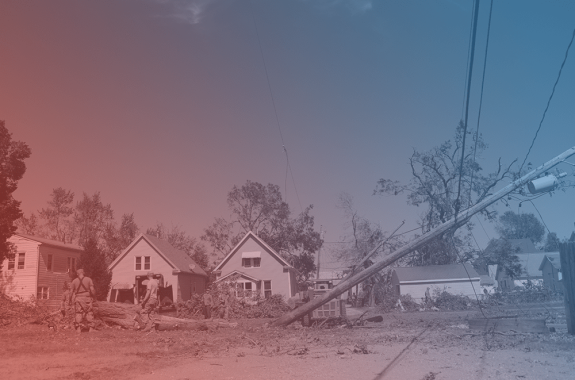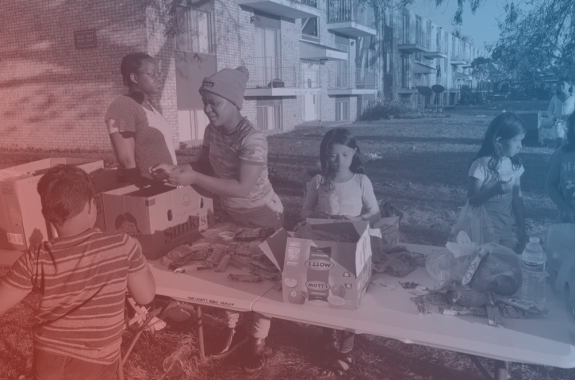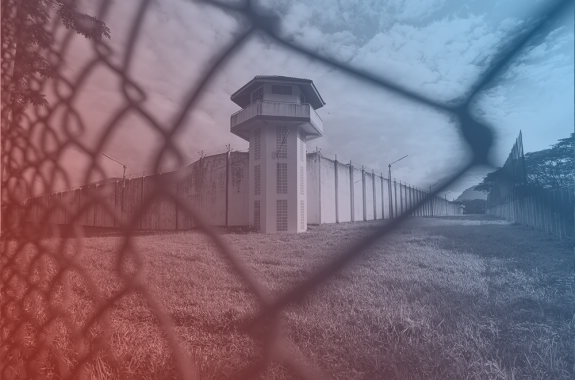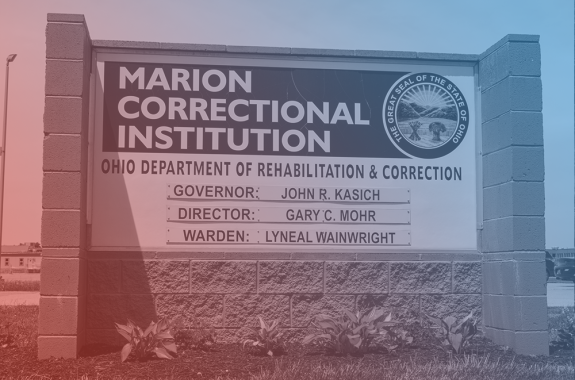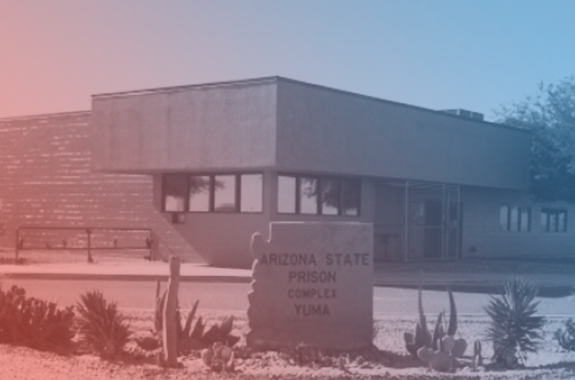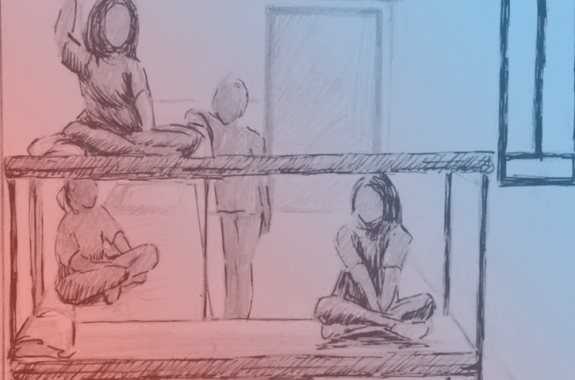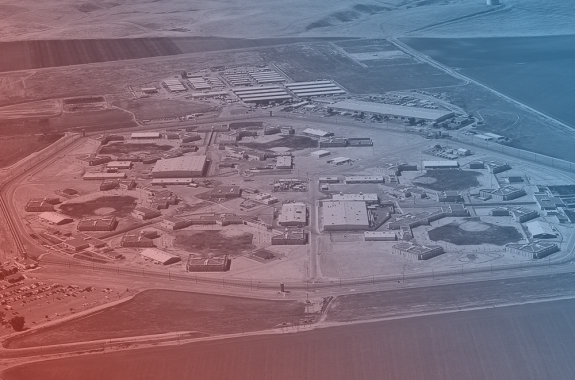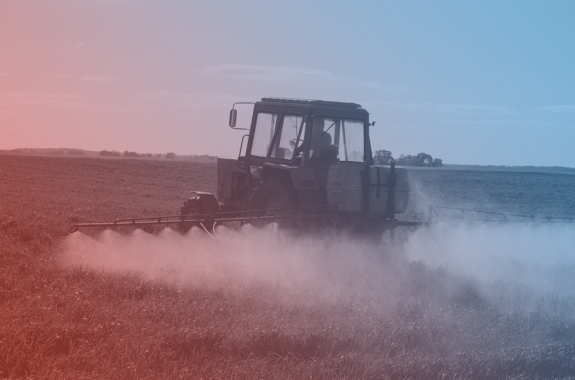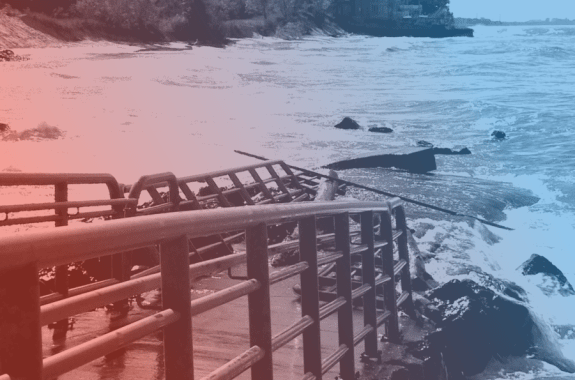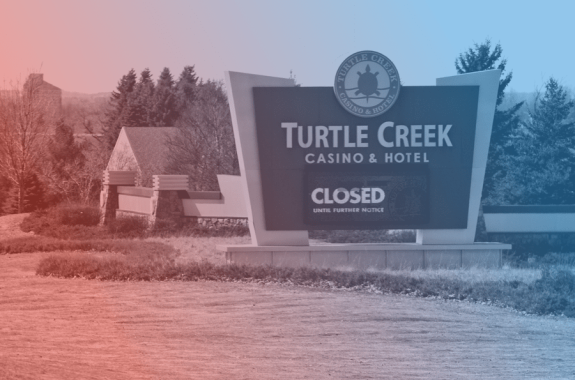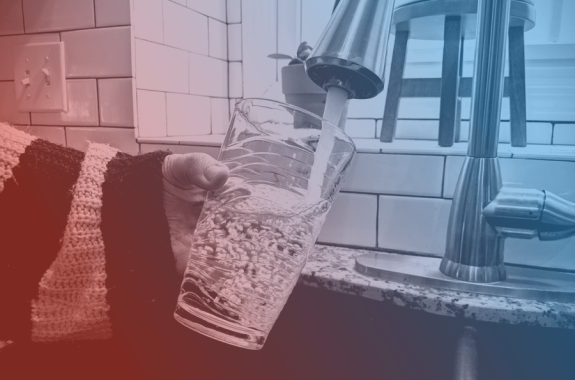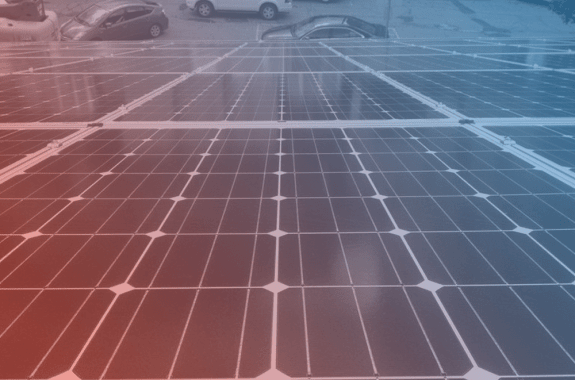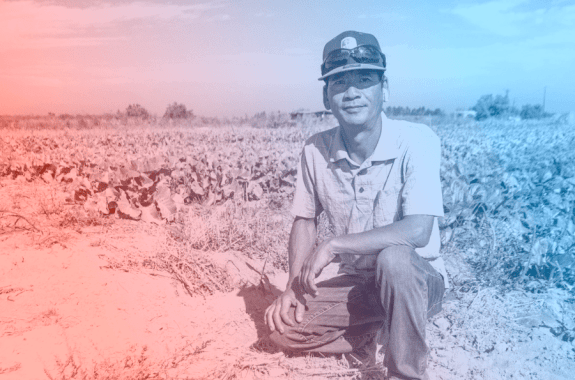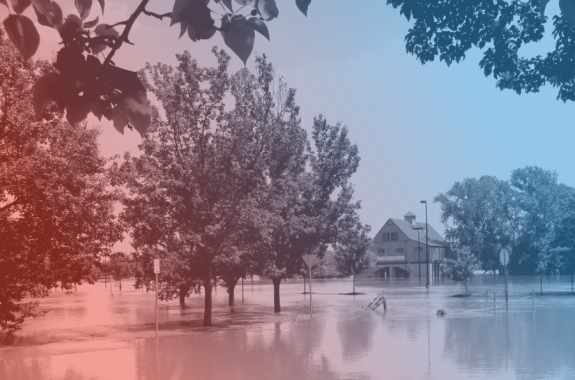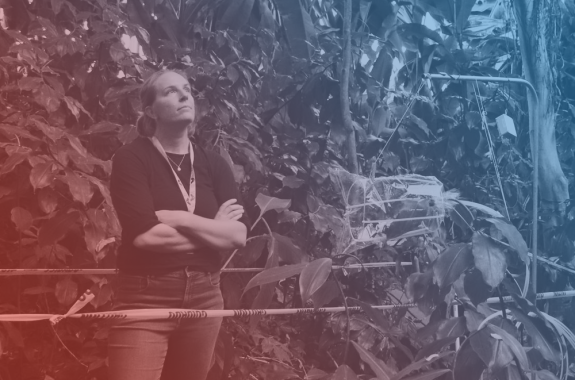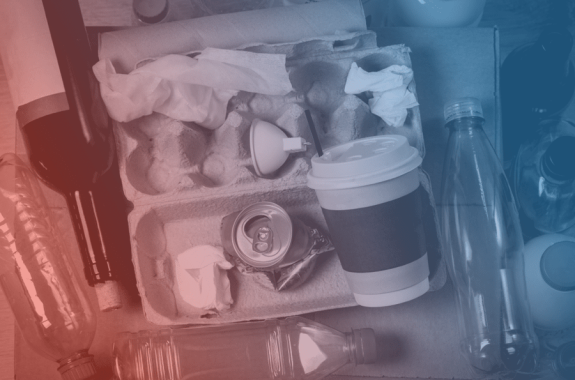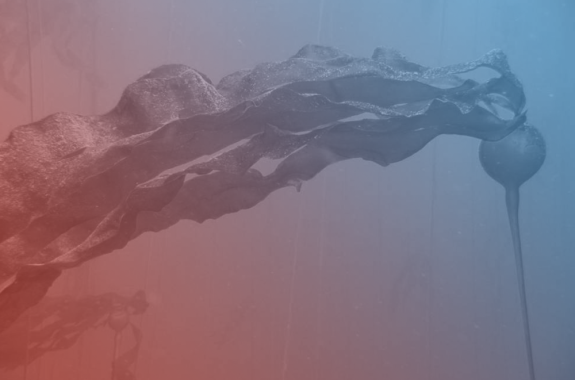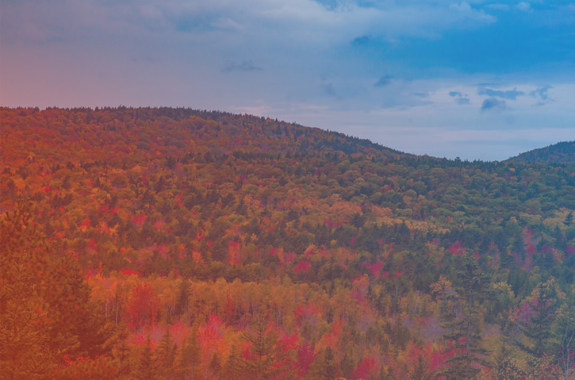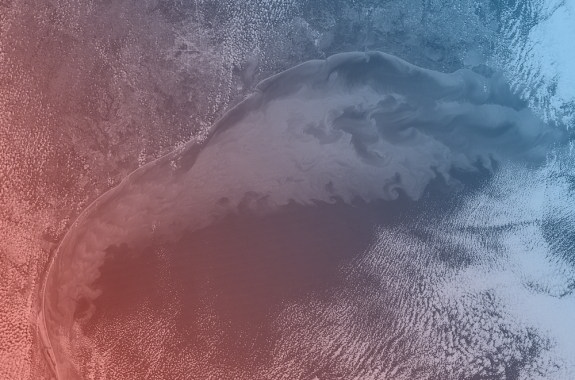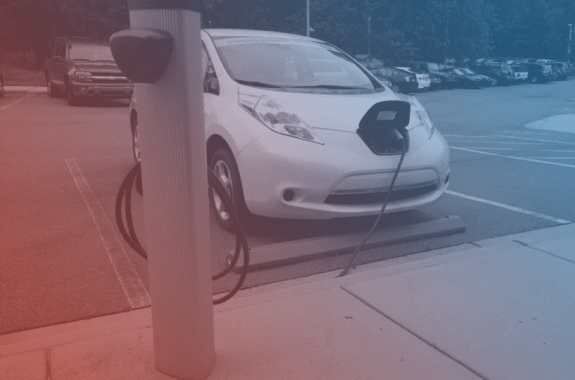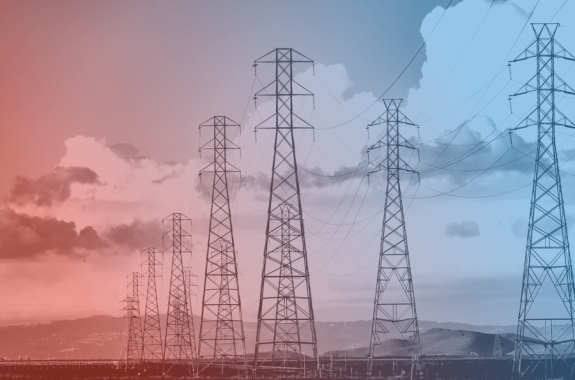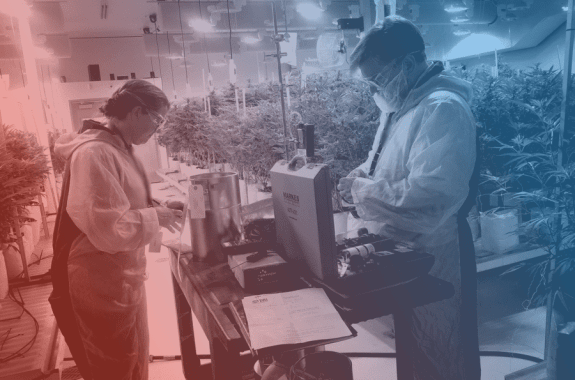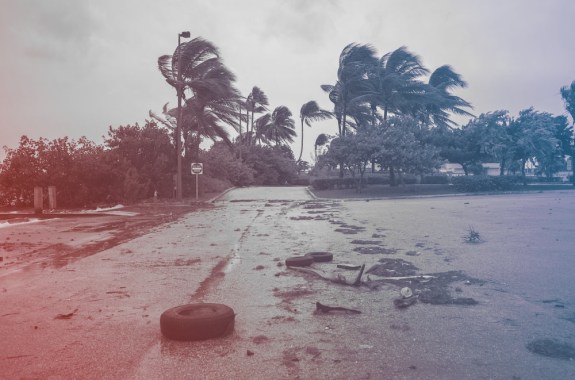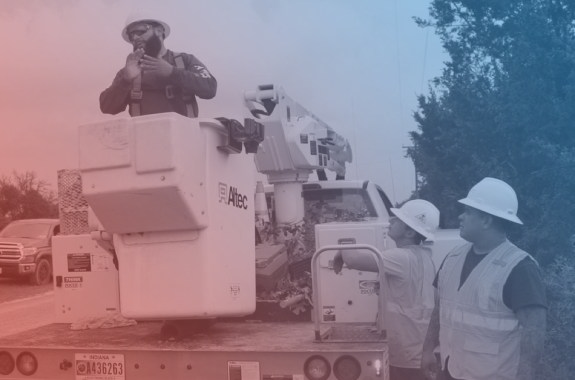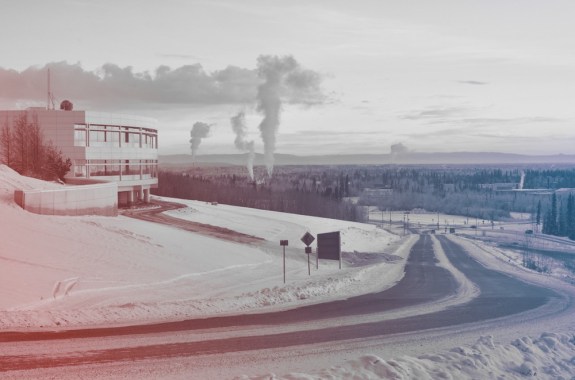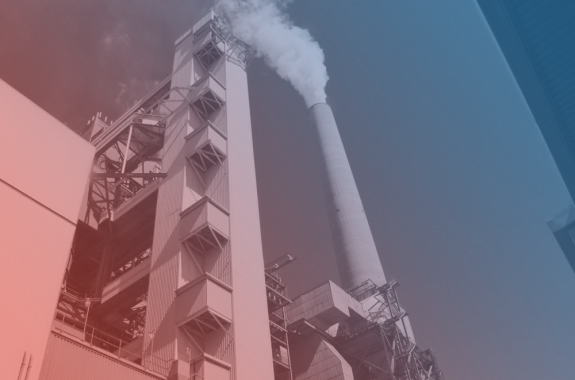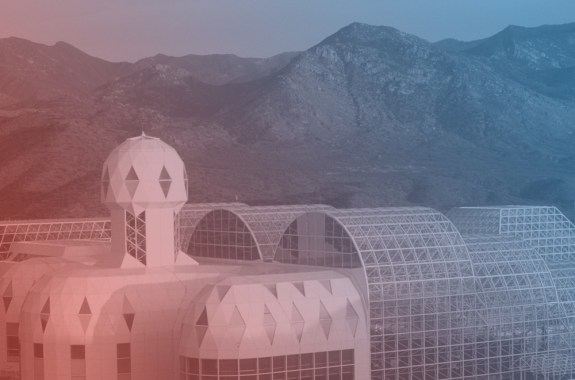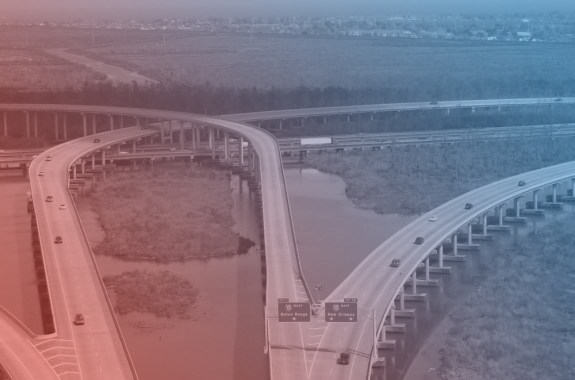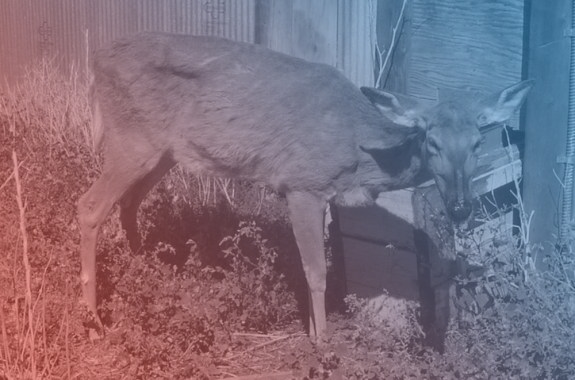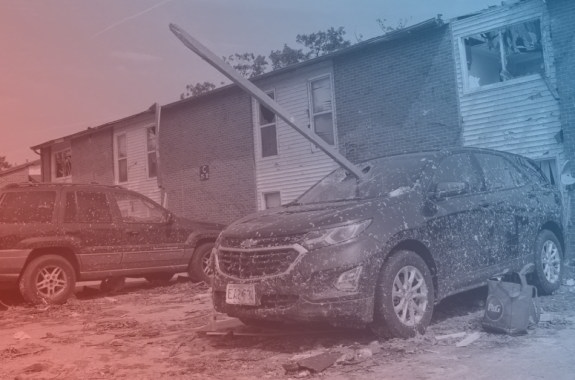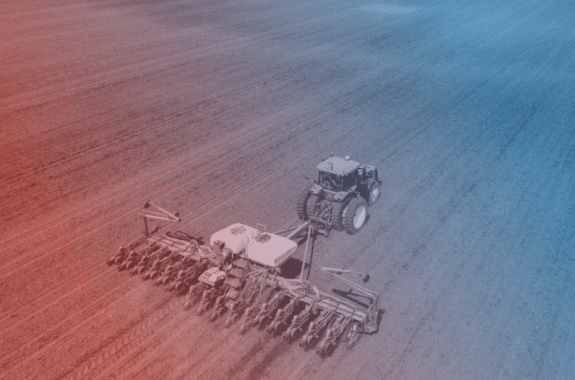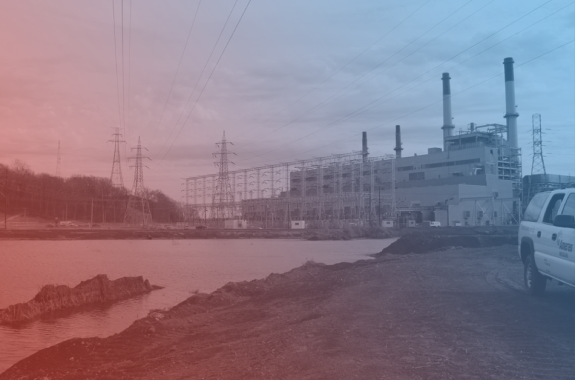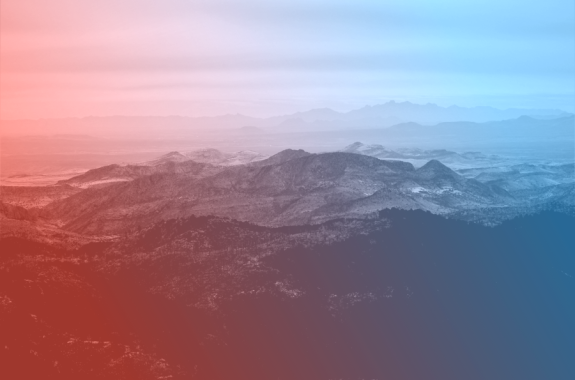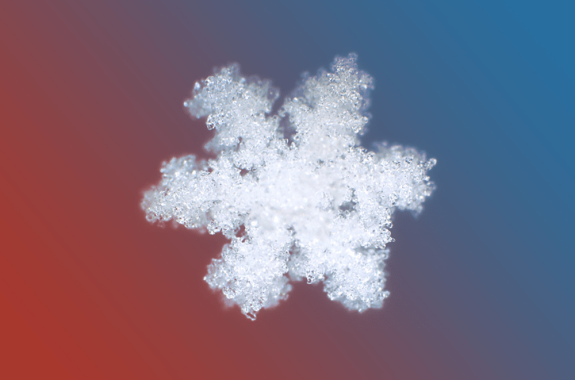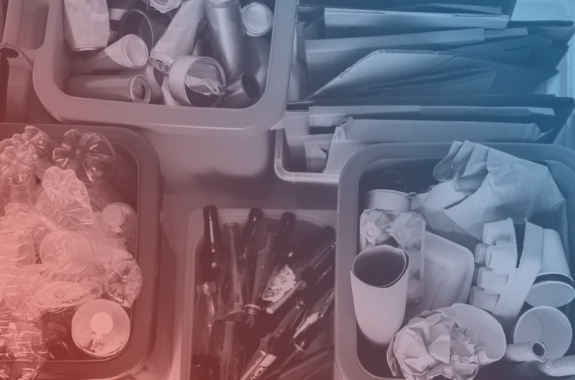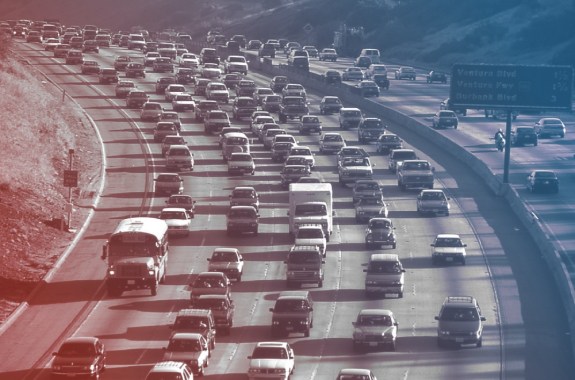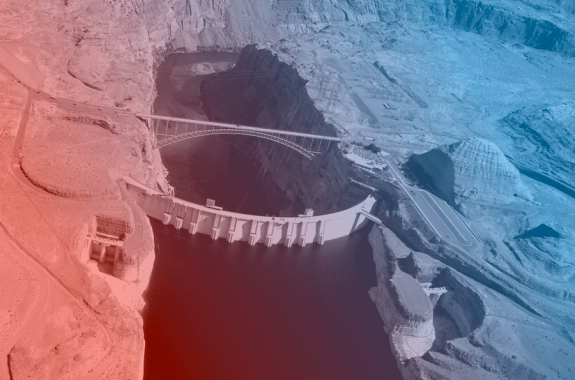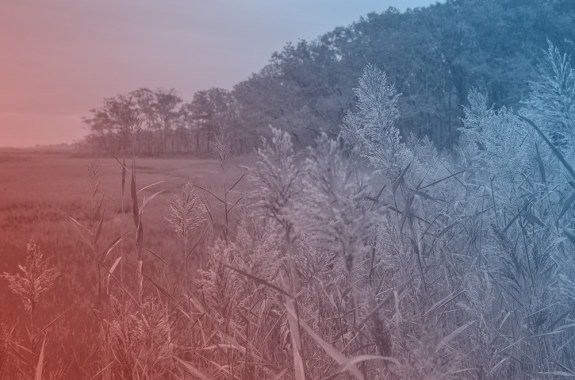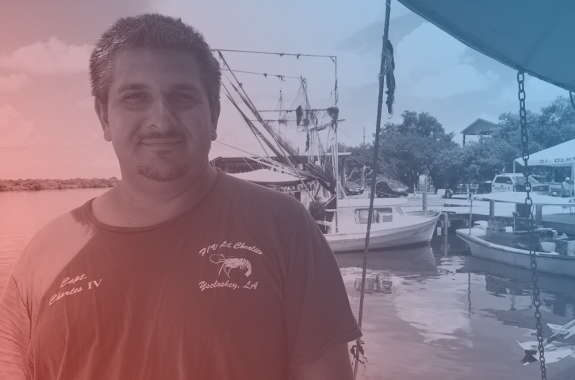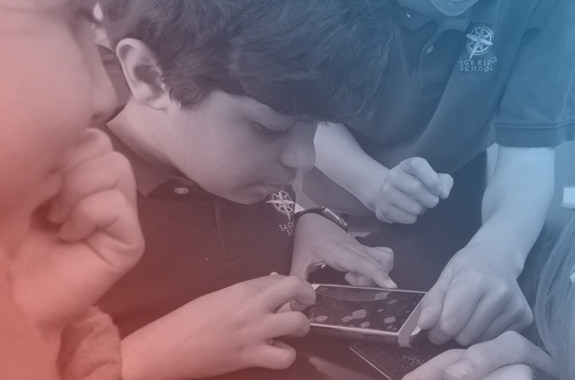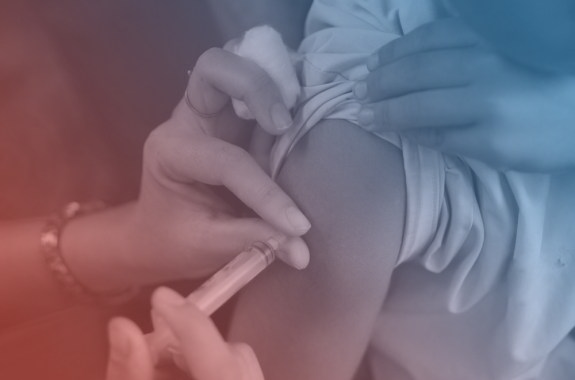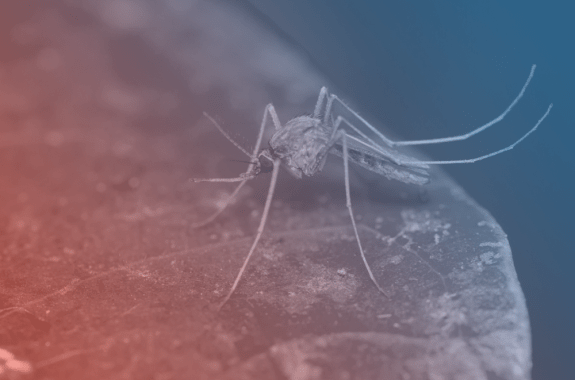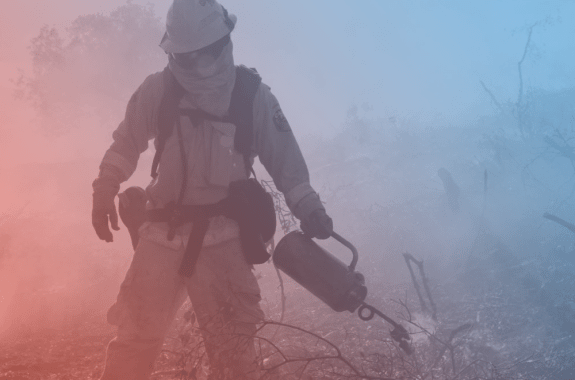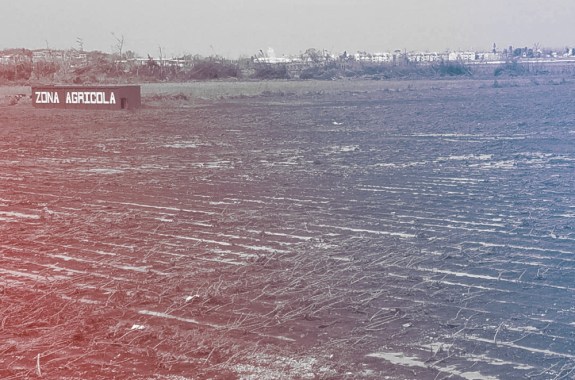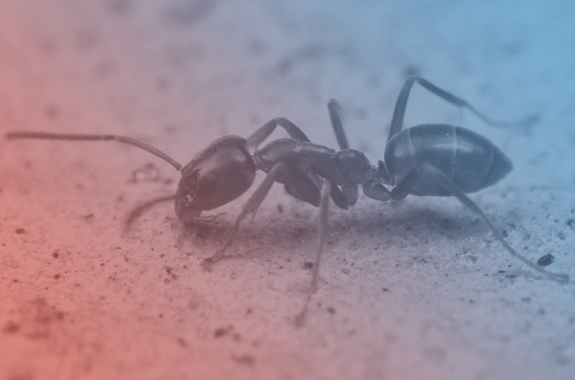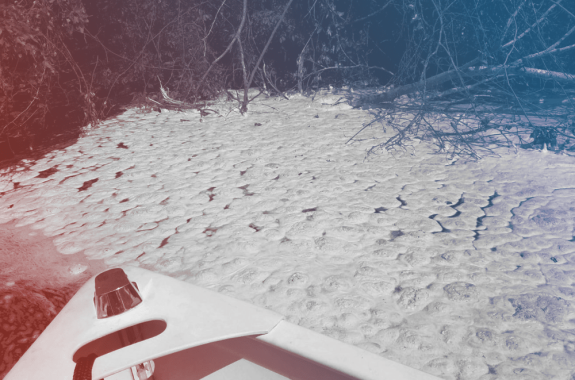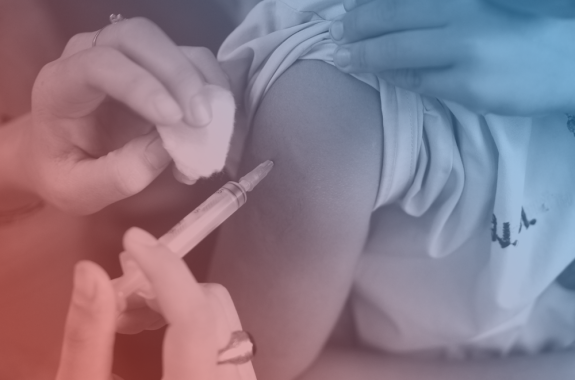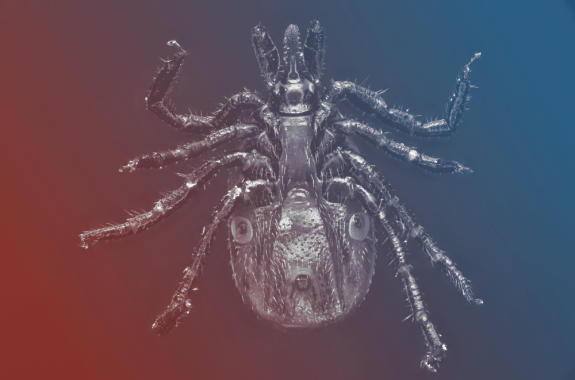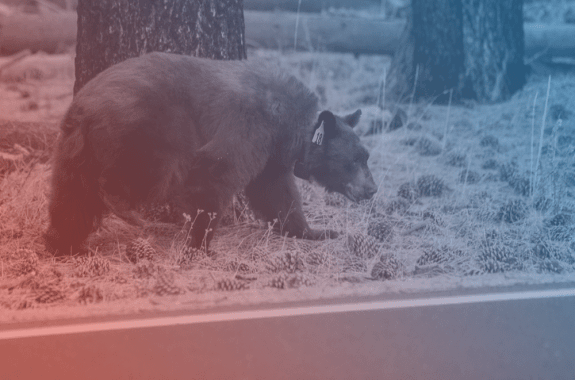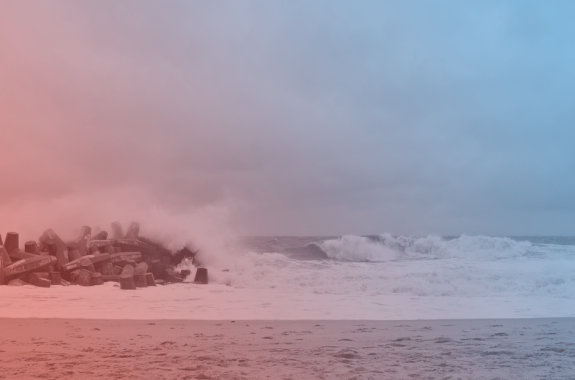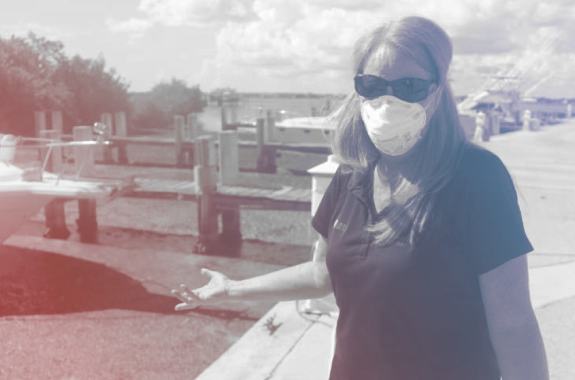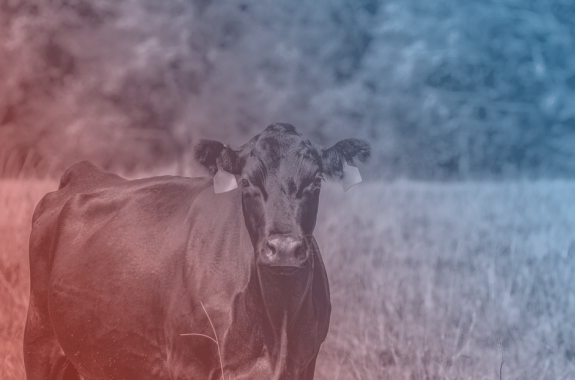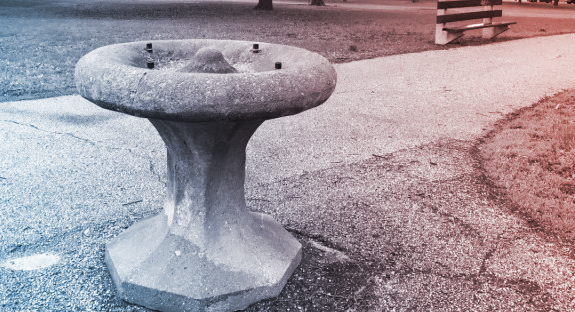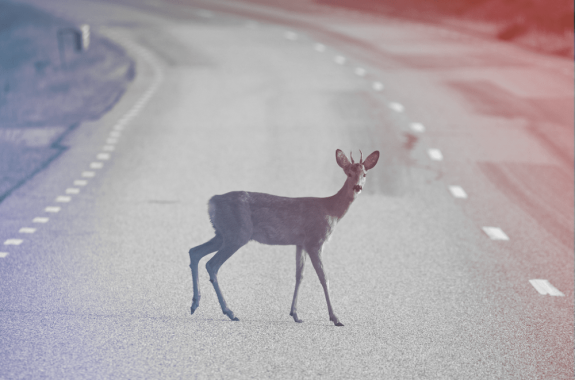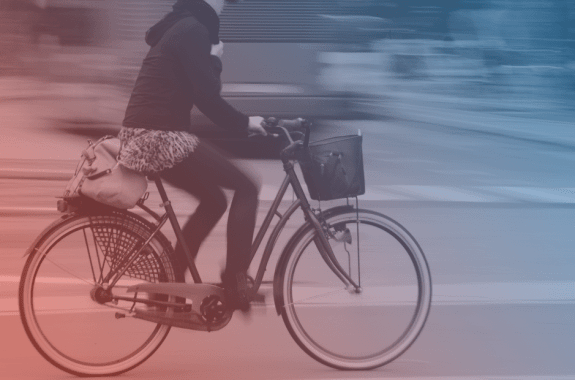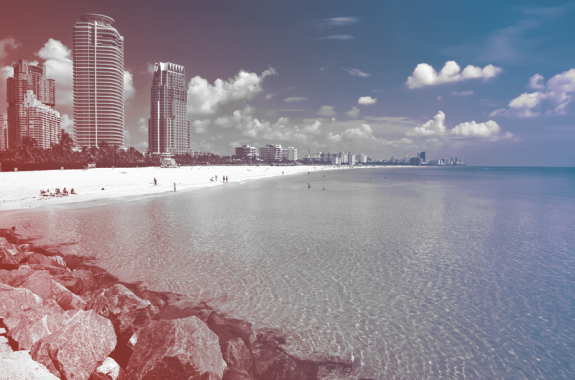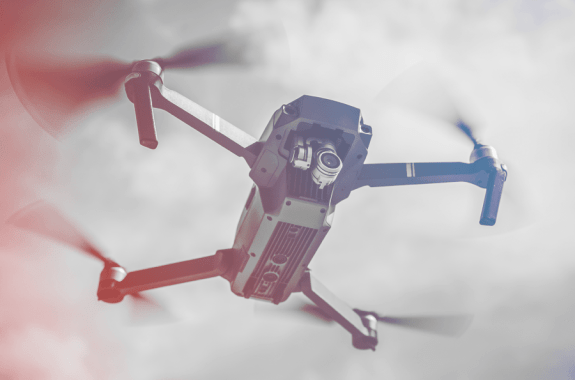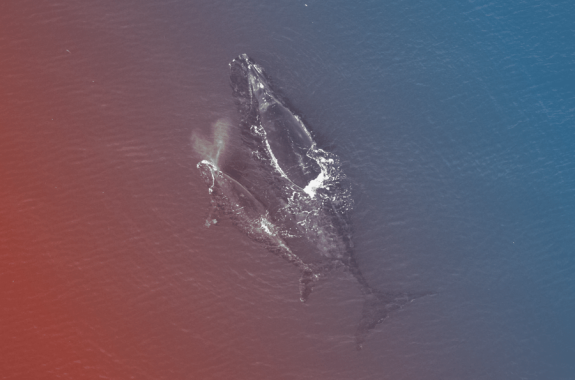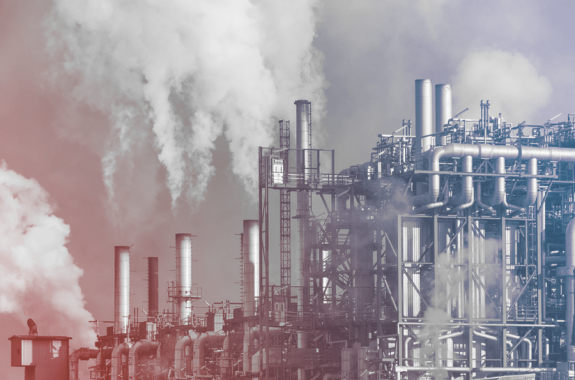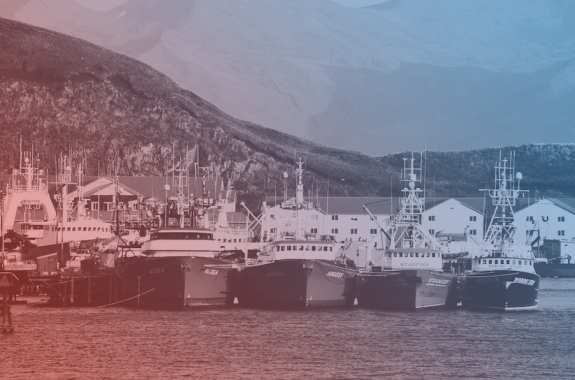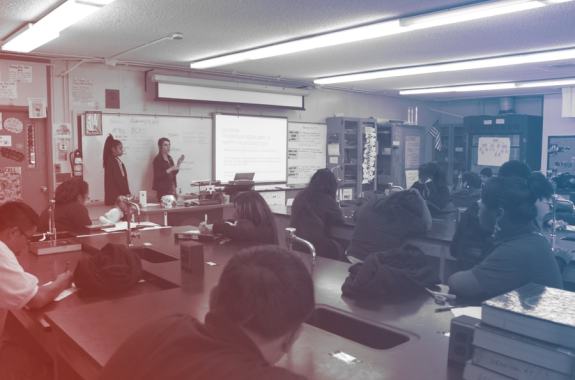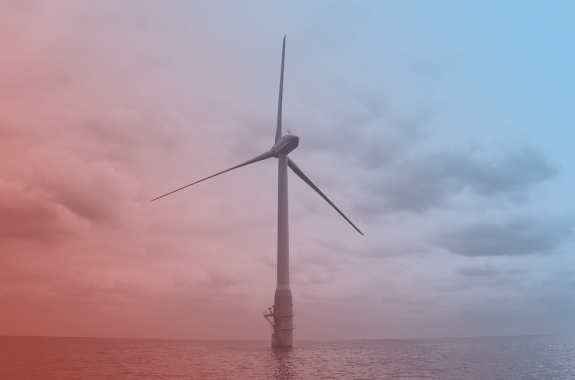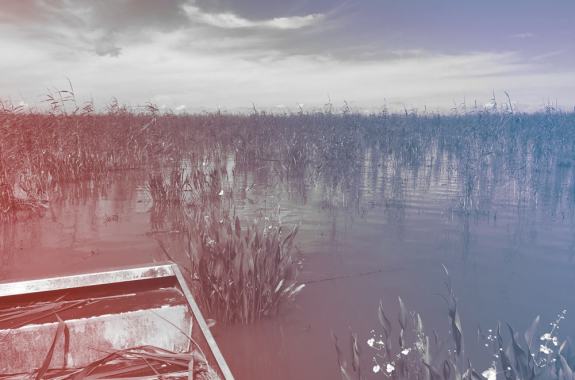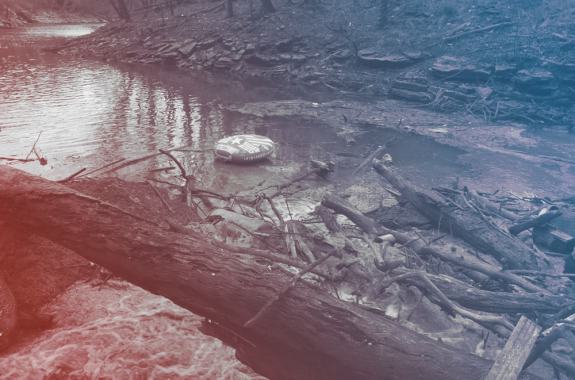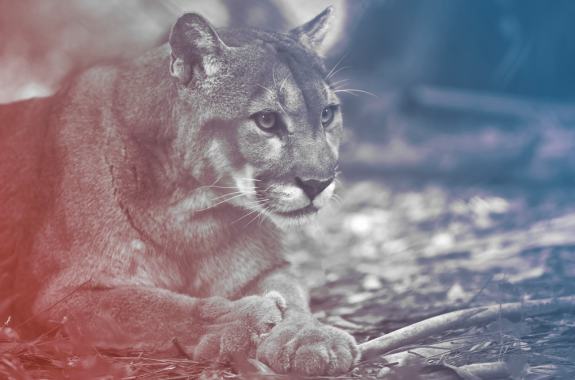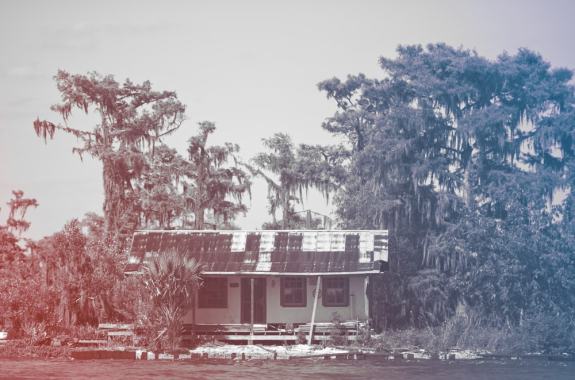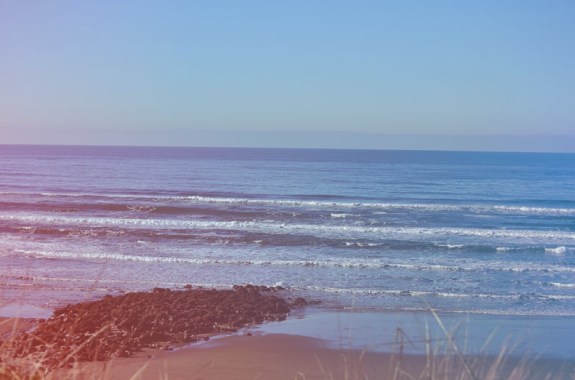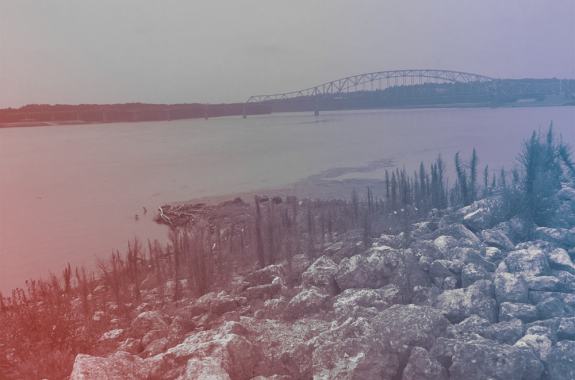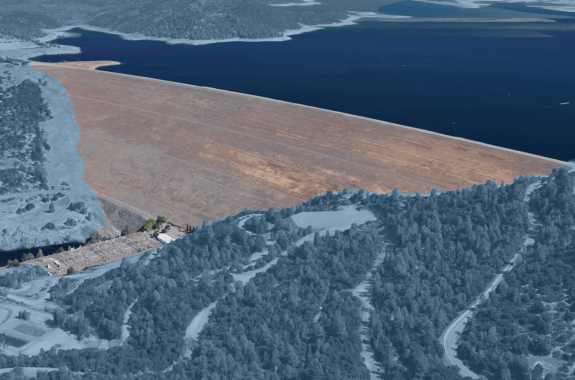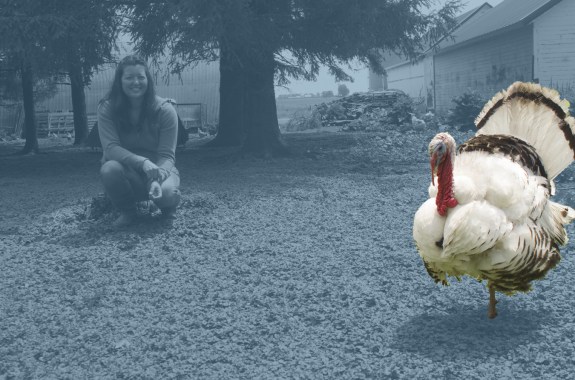Listen to our past segments.
16:07
Managing Wildfires Using A Centuries-Old Indigenous Practice
The Karuk Tribe in Northern California has stewarded its home using prescribed burns for millennia. Now, they’re training others on the skill.
10:19
The Accidental Discovery That Gave Us ‘Forever Chemicals’
The host of the “Hazard NJ” podcast talks about the origins of PFAS “forever chemicals” and their impact on New Jersey residents.
5:39
Using Oyster Shell Reefs To Counter Sea Level Rise In Louisiana
Tribes’ historic lands on the Gulf Coast are being lost to the sea. To slow it down, one tribe has turned to oyster shells.
6:59
Managing Some Invasive Plants Might Reduce Blacklegged Ticks
Researchers are connecting two ecological problems in the Northeast in hopes of reducing the risk of tick-borne illnesses.
5:12
After California’s Park Fire, A Second Bloom of Milkweed
This is great news for the nearly-extinct monarch butterflies, which will pass through the area as they migrate back to Mexico.
4:16
Scientists Push For A Lesser-Known Grain Called Kernza
Originally from Central Asia, Kernza doesn’t need to be replanted every year, unlike crops such as corn and soybeans.
6:04
Lake Michigan Swimmers Enjoy ‘Unsettling’ Warm Water
The lake’s surface temperature has been above average nearly every day this year so far. All five Great Lakes are heating up.
11:05
What Newly Approved Herbicides Could Mean For Federal Land
This summer, the Bureau of Land Management approved seven herbicides to fight invasive plants in the West.
6:52
Fishing For—And Saving—Sharks off the Jersey Shore
Shark fishing is alive and well, but the fishermen who do it are increasingly prioritizing conservation.
7:59
Protecting Sequoias From Wildfire Raises Tricky Questions
Sequoia National Park is largely designated as wilderness. That complicates efforts to protect its iconic trees from worsening wildfires.
7:23
Damaged Wind Turbine Blade Sinks Off Massachusetts Coast
Fiberglass is washing up on Nantucket’s shores, and residents are concerned about the long-term environmental impact of this debris.
6:04
If You Rolled Colorado Out Into A Brownie, How Big Would It Be?
Science suggests it would be very, very large. And still, somehow, probably larger than you think.
11:33
Helping Queen Conchs Mate In The Florida Keys
Rising temperatures shut down some conchs’ impulse to reproduce. So scientists are ferrying them to colonies in deeper, cooler waters.
5:44
In Wisconsin, Mannequins Help Teach People How To Spot Ticks
Two mannequins walk into a science lab, and one’s got a big tick problem. She can teach humans how to check for ticks.
8:21
Painting Wind Turbine Blades To Prevent Bird Collisions
A wind utility company in Wyoming is trying to make wind turbines more visible to birds by painting just one blade black.
12:07
Trees And Shrubs Are Burying Prairies Of The Great Plains
A “green glacier” of trees and shrubs is sliding across the region, burying some of the most threatened habitat on the planet.
10:39
How Louisiana Is Coping With Flooding In Cemeteries
As climate change intensifies storms, Louisiana is dealing with catastrophic flooding of cemeteries. Now other states face similar problems.
6:11
Fighting Banana Blight In A North Carolina Greenhouse
America’s most-consumed fruit is at risk from a fungal disease. Researchers in North Carolina are on a mission to save Cavendish bananas.
17:29
The Complicated Truths About Offshore Wind And Right Whales
Officials say offshore wind turbines aren’t killing North Atlantic right whales. So why do so many people think otherwise?
5:34
Farmers And Environmentalists Alike Are Excited About Biochar
This charcoal-like substance packs carbon into a stable form, making it less likely to escape into the atmosphere.
5:52
A New Recipe For Cloud Seeding To Boost Snowfall In Idaho
Scientists try swapping silver iodide for liquid propane to keep long-running cloud seeding programs effective in warmer temperatures.
7:59
A Year After Chemical Spill, Ohio Community Is Still Recovering
In East Palestine, Ohio, the stream that flows under residents’ houses is still polluted following a train derailment and chemical spill.
7:20
In This Computer Component, Data Slides Through Honey
Honey could be the secret ingredient in building a more eco-friendly “memristor,” which transmits data through malleable pathways.
10:08
Using AI To Help Find Ancient Artifacts In The Great Lakes
Researchers in Michigan modeled a prehistoric land bridge and used AI to predict where caribou–and humans–might have traveled along it.
5:42
Solar Panels In Historic Cape Cod: Who Decides Where ‘Modern’ Fits?
Local historic committees in Cape Cod are blocking some residents from installing solar panels, citing visual impact on the neighborhood.
7:52
Pennsylvania Drug Laws May Limit Syringe Services
Pennsylvania will receive more than $1.6 billion in opioid settlement funds. But state laws may prevent that money from going to syringe services.
10:30
The Captivating Story Of The West’s Wild Horses
You can buy a wild horse from the federal government for $125. Reporter Ashley Ahearn did just that.
How To Save Oregon’s Salmon? Maybe With A Giant Vacuum.
A $1.9 billion plan to suck up salmon and truck them around dams on the Willamette River raises questions.
Beech Leaf Disease Is Spreading Rapidly in Massachusetts
Scientists are working to understand the new tree disease, which is caused by a microscopic worm.
5:02
In Wyoming’s Mountain Lakes, Stocked Trout Are Evolving Quickly
Humans have long stocked alpine lakes with fish for anglers, but research shows some rapidly evolving trout are altering aquatic ecosystems.
7:41
A Saltwater Wedge Is Moving Up The Mississippi River
Thanks to a persistent drought, the creeping crisis threatens infrastructure and human health. Reporter Halle Parker answers your questions.
7:08
The Mysteries Of Freshwater Jellyfish
Researchers think the species hitched a ride on aquatic plants shipped from China, then spread across the Midwest.
10:35
Waiting for the Bus in Houston is Hot. And Dangerous.
Reporters at Houston Public Media found just how dangerous heat can be for public transit riders.
9:25
As Temperatures Rise, Farmworkers Are Unprotected
Advocates demand additional safety measures amidst preventable heat-related deaths.
10:00
What’s The Human Cost Of Alaska’s Mineral Boom?
As the state begins looking beyond fossil fuels, mining companies are quietly preparing to take over its highways.
7:15
Salmon Flourish After Mine Damage Restored In Alaska
A collaboration between the mining company and the Forest Service aim to restore local Alaskan ecosystems.
7:47
Reno Is Preparing To Turn Its Wastewater Into Drinking Water
Reno, Nevada looks to turn its wastewater into clean drinking water as the region prepares for a dryer future. But can it get the public on board?
11:39
World’s Richest Lithium Deposit Faces Opposition To Mining
The deposit lies deep in the woods of western Maine, but its discovery has sparked debate over environmental concerns.
4:58
Preserving Acadia National Park’s Vanishing Birdsong
Climate change is affecting the ranges of the park’s 300 bird species.
5:23
Researchers Quantify The Navajo Nation’s Water Crisis
Two researchers are conducting a household water study to illuminate how many people lack access to clean water on the reservation.
6:41
Thanks To A Mesozoic Hot Spot, We Finally Know How Old The Utahraptor Is
Researchers have found that the Utahraptor is 10 million years older than previously thought.
5:51
Twenty Years On, The Little CubeSat Is Bigger Than Ever
The tissue box-sized satellite made space research easier, and cheaper.
10:08
Southwestern States Break The Dam On Water Stalemate
California, Arizona, and Nevada finally reach a compromise to cut use water use from the Colorado River.
16:54
A Biotech Offensive Against Disease-Carrying Mosquitoes
Lee County, Florida is using biotechnology to eradicate mosquitoes. Plus, how CRISPR can engineer a reduction in disease-carrying mosquitoes.
5:10
Testing Mars Rovers In Utah’s Red Desert
Student innovators compete in a rover-testing challenge at the Mars Desert Research Station in Utah.
5:02
Philadelphia’s Mütter Museum Takes Down Digital Resources
A patient with a rare condition donated his heart to the museum, only to have it caught up in the conversation over how to handle human remains.
6:33
SpaceX Explosion Damages Environment Around Launch Site
A debris cloud deposited potentially hazardous material as far as six miles north of the launch pad.
11:54
The Southwest Is Learning to Live With Less
A new podcast is a tale of climate change and bureaucracy due to Colorado River drought.
6:12
Fighting Climate Change With Genetically Modified Trees
Can trees be genetically engineered to store more carbon? A new strategy to do just that is being put to the test in a Georgia forest.
8:38
Farm Fertilizers Can Contain ‘Forever Chemicals’ From Sewage
Dangerous chemicals called PFAS, are now ubiquitous, contaminating waste that ends up on farm fields.
5:52
Foundational Food Sources In The Gulf Of Maine Are Failing
Decades of research suggest that warming temperatures are collapsing the gulf’s productivity.
6:14
An Underwater Volcano Off The Oregon Coast Sheds Light On Eruptions
The Axial Seamount is a natural laboratory, helping scientists improve long-term eruption forecasts.
5:04
An Ambitious Plan To Build Back Louisiana’s Coast
The state will receive $2 billion dollars to reconnect the Mississippi River to its nearby marshes, but local shrimpers and oyster harvesters aren’t convinced.
7:22
How These Russian Wasps Could Help Save Ash Trees
Scientists recruited the help of the emerald ash borers’ natural predator to keep their population in check.
9:08
A Long History Shadows Fight Over California’s Shasta Dam
The Shasta Dam helped turn the state into an agricultural cornucopia—but it destroyed the home of the Winnemem Wintu.
9:24
Ohio Residents Want Answers About Risks Of Train Derailment
At a recent community meeting, East Palestine residents raised concerns were raised about air and water quality.
8:41
Midwest Aims To Add Large Indoor Animal Farms, Despite Concerns
States like Missouri and Nebraska are paving the way to welcome large livestock operations, but rural residents worry about the environmental risk of manure runoff.
7:45
Road Salt Is Washing Into The Mississippi River… And It’s Not Washing Out
Road salt washes into the Mississippi River, harming ecosystems, seeping into groundwater, and corroding water pipes.
8:06
Why Are Children’s Antibiotics So Hard To Find Right Now?
Common antibiotics like penicillin, needed for kids with sickle cell, are becoming scarce, even as the FDA says there isn’t a shortage.
5:07
In A New Hampshire Town, It’s Snowmobilers Vs. Beavers
Some residents want to leave a pond to beavers; others want it drained for snowmobile trails.
12:17
To Stop Whale Strikes, Ships Were Asked To Slow Down. It Worked
NOAA found that when ships decreased their speed during migration times, whale fatalities were cut in half.
6:12
Putting Tap Water To The Test
Reporter Alex Hager reports on what happens when sommelier standards are applied to Colorado’s tap water.
7:17
Groundwater Contamination In Missouri Kept Secret From Residents
Department of Natural Resources employees knew the contamination had “undoubtedly occurred” in 1993. The broader public didn’t learn it was in their drinking water until 2018.
8:49
Across The Country, RSV Is Overwhelming Medical Systems
Though they face different challenges, doctors from the Midwest to the mid-Atlantic are wrestling with skyrocketing cases and overflowing medical centers.
5:14
Toxic Death Cap Mushrooms Take Root In The Mountain West
A highly poisonous, hard-to-eradicate species of mushroom has found its way from Europe to California and Idaho.
7:41
The Mysterious Case Of Alaska’s Crabs
King and Snow crabs are huge economic drivers for Alaskan fishermen. As populations dwindle, two of the state’s crab seasons are canceled.
9:30
Vague Medical Marijuana Rules Leave Workers And Employers In The Dark
More than a dozen lawsuits reveal a program that’s confusing for 400,000 statewide medical marijuana patients.
7:21
Why Are Dead Fish Piling Up Across The San Francisco Bay?
Untreated sewage discharge in the warming waters may have caused a dangerous algal bloom.
10:24
New Jersey’s Lenape Nation Fights Ford’s Toxic Legacy
A court case seeks to recover damages from the impact of the car company’s toxic waste.
4:17
Attracting Birds To Prime Habitat By Playing Recordings Of Their Calls
Researchers are broadcasting recorded bird calls to try to bring secretive rails to prime habitat where they can feed and mate.
7:00
Seagrass Oasis In Gulf Of Mexico Signals Good News For Manatees
Seagrass is the bedrock of the marine food chain. That makes it an important habitat to protect.
5:05
Some Grasses Can Stop Lead From Spreading In Soil
As the consequences of decades-old lead mining and smelting linger, scientists look for solutions to clean up lead pollution in the Midwest.
12:03
Protecting Piping Plovers Isn’t A Walk On The Beach
Piping plovers face a myriad of threats: predators, flooding, and human development. But volunteers are intervening to help them survive.
5:47
Restoring A Sensitive Ecosystem, One Wildflower At A Time
Protecting important habitats, like the sandplain grasslands of the Atlantic Coast, is critical in a changing climate.
5:45
Texas Heatwave Puts Strain On Electric Grid
Shining a light on solar power infrastructure might prove beneficial during one of the state’s hottest summers on record.
6:26
Food Pantry Venison May Contain Lead
Donated venison is an important source of protein for community programs, but many states fail to warn about potential lead contamination.
7:32
How A $2 Billion U.S. Plan To Save Salmon In The Northwest Is Failing
Despite billions of federal subsidies, salmon survival is predicted to decline by 90% in the next four decades.
6:24
How Recreational Weed Transformed A Small California Town
Woodlake, CA has no stoplights, one fast-food restaurant, and seven cannabis businesses.
9:28
Midwestern Farmers Face Drought And Dust
As extreme drought takes over the Great Plains, farmers worry about crop failures and wildfires.
7:02
One Alaskan Island’s Fight For A Rodent-Free Future
For millions of years, birds in the Aleutians lived without predators. Then rats arrived.
6:00
COVID-19 Vaccines Are Some Divorced Parents’ Newest Divide
Judges are seeing skyrocketing numbers of separated parents arguing over whether to vaccinate their children.
12:21
Building The World’s Largest Animal Crossing Outside of LA
An engineering feat will soon reconnect habitats cut off from each other by Highway 101 for 75 years.
6:53
The Colorado River Misses Its Snow
Ongoing drought makes it more important to understand data about snow and rivers.
8:15
An Oregon Lithium Deposit Could Help Power Clean Energy Tech
As the U.S. divests from Russian energy sources, it looks towards sites like a lithium deposit in Oregon. But mining it might take awhile.
6:03
Millions Of Iowa Chickens Infected With Deadly Strain Of Bird Flu
It’s too early to tell how this will compare to 2015’s disastrous outbreak.
8:16
U.S., Russia, and Canada Continue Collaboration On Wild Salmon Survey
Despite political tensions, researchers continue the 2022 Pan-Pacific Winter High Seas Expedition to track wild salmon.
17:24
Once Again, Transgender And Nonbinary Kids Are Under Attack In Texas
Governor Greg Abbott instructed state agencies to prosecute families providing essential gender-affirming treatment, putting kids at risk.
7:13
Climate Change Ruins The World Championship Sled Dog Derby
At the World Championship Sled Dog Derby, warm weather played an unwanted star role.
9:33
Ivermectin’s False Reputation Exemplifies How Misinformation Spread
The unproven drug lacks scientific backing—and even the studies that purportedly found it effective have been disputed and retracted.
6:34
What Is Causing Maine’s Puffins To Physically Shrink?
Centuries of see-sawing growth and decline now has a new factor: climate change.
10:09
Tribal Concerns Grow As Water Levels Drop In The Colorado River Basin
Historically excluded from negotiations, Indigenous communities want to make sure they have a seat at the water-distributing table.
18:00
As Wildfire Intensity Rises, So Does The Human Toll Of Blazes
Wildfire season in the West is now year-long, thanks to climate change. Listen to residents and rescuers as they grapple with the new normal.
8:06
What’s Next For Kansas After 20 Years Of Wind Power?
After two decades, wind farms in Kansas take stock of how the state has changed—and what challenges lie ahead.
17:21
Beavers Build Ecosystems Of Resilience
In a Colorado burn scar, wetland oases created by beavers are surviving the West’s new megafires.
10:06
On Long Island, A Tribal Nation Faces Growing Pressures
A new podcast from WSHU Public Radio explores the intersection of Native American territory, climate change, and suburbia in one of the wealthiest parts of the East Coast.
39:09
The Hot And Cold Past Of The Air Conditioner
From the 1904 World’s Fair to deadly heat waves, take a look back at more than a century of AC.
12:12
Pilgrim Nuclear Power Plant Gears Up To Move Its Radioactive Waste
Decommissioning the nuclear power plant in Plymouth, Massachusetts has been a long, dangerous process.
16:08
How COVID-19 Reveals Existing Biases Against The Disability Community
Disability advocates feel let down by California’s pandemic response—and are fighting for more equal treatment.
7:39
Florida Schools With Mask Mandates Lose Funding
Governor Ron DeSantis’ crusade against masks in schools reaches a fever pitch.
16:39
Local Communities Spar Over Minnesota Oil Pipeline
A plan to replace aging oil infrastructure is nearly complete. Here’s why tribal nations and other Minnesota residents are still divided over its risks and benefits.
10:01
What Happens When The Colorado River Runs Dry?
The water system supplies water to 40 million people. What happens if it dries up?
7:15
Making Syrup From More Than Maple Trees
To make forests and farmers more resilient, researchers and hobbyists are branching beyond maple syrup.
4:41
Offshore Wind Power Moves Forward In Massachusetts
Massachusetts’ Vineyard Wind offshore wind farm has been in the planning stage for years. Now, the project may finally be going forward.
5:58
Punjabi Sikh Truckers Lack Access To COVID-19 Information
Organizations like Jakara Movement and Punjabi Radio USA filled in the information gaps for the Punjabi speaking community in California.
06:00
Even During A Pandemic, Florida’s Spring Break Party Continues
Health experts worry that large numbers of tourists in Florida, plus few restrictions will add up to pandemic problems.
5:31
What Went Wrong With Jackson, Mississippi’s Water?
The problem lies in the city’s outdated water infrastructure.
16:56
Wisconsin Oversteps In Wolf Hunt
After gray wolves were removed from the federal endangered species list, hunters in Wisconsin killed nearly twice the allowed quota of gray wolves.
16:34
The Aftermath Of Texas’ Winter Storm
While power has been mostly restored, journalists report Texans are now facing water shortages, housing damage, and crop losses.
5:29
Former Michigan Governor, Other Officials Charged for Flint Water Crisis
The charges, which came as a surprise to many residents, come seven years after the health crisis began.
11:58
West Virginia Leads In Race To Distribute Vaccines
Why has New York struggled to distribute COVID-19 vaccines, while West Virginia excelled?
12:12
Trump Administration Rushes To Sell Arctic National Wildlife Refuge Land For Drilling
Despite lawsuits and outcry, there’s a race to develop an important piece of Arctic habitat.
17:15
The Election Shows Americans Are Rethinking The War On Drugs
Both red and blue states approved drug reform in last week’s election.
South Dakota Voters Pass Marijuana Measures
The federal government may still prohibit the drug, but South Dakota joins the many states who have legalized or decriminalized it.
Oregon Voters Decriminalize Possessing Illegal Drugs
The ballot measure makes personally possessing small amounts of drugs a civil violation, while also providing addiction services funding.
5:52
Pennsylvania’s Voters Are Concerned About Climate Change
Despite President Trump’s rhetoric, fracking remains controversial in Pennsylvania.
12:07
Across The Country, A Spike In Coronavirus Cases
From Wyoming to Wisconsin, COVID-19 cases are on the rise.
28:31
America’s Elder Care Has A Problem
Wildfires and COVID-19 are shining a light on the systemic issues in ill-equipped, worn out facilities, causing many to rethink what long-term care looks like in America.
Kansas Nursing Home Staff Struggle With COVID-19 Burn Out
Months into the pandemic, nursing home staff in Kansas get little relief due to limited testing and resources.
In The Face Of Wildfire, California Nursing Homes Are Unprepared
In 2017, the Tubbs Fire in California raged towards a nursing home with 62 residents. Here’s what they did with no evacuation plan.
How Dementia Patients Are Coping During The Pandemic
At a healthcare center in Massachusetts, patients with dementia face the challenges and loneliness of the coronavirus lockdown.
16:48
NYC’s Trees: A Natural Defense Against Heat, But Not Equally Shared
Creating an urban forest ecosystem can help reduce the impacts of climate change.
12:17
Dealing With The Aftermath Of Iowa’s Devastating Derecho
Last week, a severe inland storm hit the Midwest like a hurricane. Scientists and experts explain why they can be hard to predict.
Refugee Families Find Shelter After Iowa’s Derecho
After days of sleeping in tents, cars, and on the ground, refugee families in Cedar Rapids have moved to temporary housing and received much needed aid.
29:44
Living With Coronavirus, Behind Bars
For months, the incarcerated population has been battling COVID-19—and the struggle to contain the disease is highlighting systemic public health issues.
A Coronavirus Outbreak Inside An Ohio Correctional Institution
At Marion Correctional Institution in Ohio, coronavirus testing revealed more than 80% of the incarcerated population was contaminated—becoming one of the country’s largest outbreaks.
Arizona Inmates And Staff “Just Trying To Survive” COVID-19
In two Arizona state prisons, understaffed correctional officers and inmates are navigating rising rates of COVID-19 infections with few resources.
Indiana Women’s Prison Forced To Sweat Out Coronavirus Lockdown
In an effort to contain coronavirus numbers, inmates are confined up to 20 hours in their cells with no air conditioning, toilets, or sinks.
Before Facing COVID-19, A California State Prison Struggled With Valley Fever
A decade ago, Avenal State Prison scrambled to contain an outbreak of a deadly fungal disease that former inmates still battle today.
12:11
Federal Ruling Against Common Herbicides Leaves Farmers Confused
While this is an environmental win, farmers say the ruling is yet another hurdle in an already difficult year.
4:32
Erosion Threatens A Unique Ecosystem
Indiana’s Lake Michigan shoreline is one of the most biodiverse places in the country. But that biodiversity is now washing away.
4:42
Tribes Face COVID-19 With Limited Test Kits, Remote Staff, Lost Revenue
Michigan’s tribal governments are running into their own problems with COVID-19.
3:46
What You Don’t Know About Well Water Could Hurt You
Residents in Kansas who use private wells face uncertainty about what’s in their water.
4:33
Why Coal Country May Be Going Solar
A new bill passing through the West Virginia state legislature would increase the state’s solar capacity by 5,000%.
3:41
Bringing California’s Groundwater Into Balance
The Sustainable Groundwater Management Act seeks to regulate water flowing out of and into California’s underground aquifers.
3:54
Planning For Spring Waters Along The Missouri
Looking to repaired levees in the hopes of reducing future flood damage.
4:01
Studying Drought, Under Glass
Scientists are using the enclosed Biosphere 2 ecosystem to investigate how carbon moves in a rainforest under drought conditions.
5:30
Rumbles On The Colorado-Utah Border Spark New Water Plan
With a water treatment facility causing earthquakes, officials are seeking new solutions for the overly-salty Dolores River.
4:44
Plastic, Plastic, Everywhere
A report finds that recycling rates in Oregon are in decline, due in part to increased use of non-recyclable plastics.
11:58
An Undersea Forest In Decline
Off the coast of California, forests of kelp are being decimated by warming temperatures and hungry sea urchins.
4:39
Leaf Data, In Your Family Albums
Researchers are collecting snapshots of Acadia National Park to supplement satellite data on fall leaf colors.
5:06
Northeastern Bat Populations Haven’t Recovered From White-Nose Syndrome
And the disease is now popping up on the west coast.
4:42
Reducing Runoff To Protect The Gulf
A ‘dead zone’ in the Gulf of Mexico has states along the Mississippi working to reduce nutrient runoff.
5:32
What’s The Charge… For An Electric Car Charge?
In North Carolina, electric vehicle charging stations will start operating more like gas pumps.
4:37
Your Questions Answered About California’s Power Shut-Offs
Strong winds could damage power lines and spark deadly wildfires, so utility companies are shutting off power to millions of California residents.
4:47
Growing Cannabis Could Lead To More Air Pollution
Growing cannabis has environmental impacts, like increased water and electricity use. But it might also contribute to air pollution.
4:23
Are Florida’s Nursing Homes Prepared For Hurricanes?
Florida has one of the largest nursing home populations in the country. But it’s struggling to meet new preparedness guidelines.
11:38
Bridging The Digital Divide In Texas’ Wide-Open Spaces
High-speed internet access is becoming a necessity of modern life, but connecting over a million rural Texans is a challenge.
4:42
What’s Next For The University Of Alaska System?
In the face of major budget cuts, the University of Alaska system takes a step towards consolidation.
4:08
Hoping For A Sunny Future, The Navajo Tribe Turns To Solar
As the last coal-fired power plant plans to shut down at the end of the year, the Navajo Tribe is embracing renewables.
5:19
A Coral Rescue Effort—In Arizona
A project aims to use the artificial sea of Biosphere 2 as a testing ground for bringing back coral reefs affected by climate change.
4:10
New Orleans Sues Energy Companies To Repair Its Wetlands
Climate change is causing parts of Louisiana to sink. Now the city of New Orleans wants energy companies to pay to fix it.
11:51
A Tiny Twisted Protein, A Big Problem For Wildlife
Chronic wasting disease is a fatal illness affecting the brains of deer, moose, and elk.
4:03
Data From Destruction
Researchers in Missouri are examining the after-effects of recent tornadoes to engineer stronger homes.
5:20
When A Dominant Herbicide Becomes Less Effective, What Next?
The herbicide glyphosate, found in products such as Roundup, has become a crucial tool on midwestern farms—but weeds are becoming resistant.
3:19
How Much Fuel Does A Green Spring Add To The Fire?
California’s newly verdant hills will turn into kindling come this year’s wildfire season.
5:49
Missouri Looks To Regulate Coal Ash Ponds
Toxic coal ash is contaminating groundwater around the state. Will proposed new regulations be enough?
3:47
New Mexico Sets A Renewables Plan
The New Mexico state legislature has passed a bill calling for the state to transition entirely to renewable energy by 2050.
4:19
How Climate Change Ruins Snowflakes
How does warm air distort snowflake shapes? And in New York, a citizen science project asks just how bad it is.
5:10
Rethinking Recycling In Philadelphia Suburbs
China won’t take our subpar plastics anymore. What’s next for your local recycling plant?
4:57
California And The Federal Government Clash Over Environmental Rules (Again)
Trump Administration officials have pulled out of talks with California over fuel economy standards for cars.
4:41
How Will Arizona Battle Drought In The Next Decade?
Arizona, and seven other states that use the Colorado River for water, is putting together a plan to address future drought and water needs.
4:19
Big Corporations Bet On Wind Power in Kansas
Fortune 500 companies are purchasing energy directly from wind projects to resell in hopes of turning a profit.
3:52
The Complex Problem Of The Invasive Common Reed
Common reeds are invading New England marshlands—but could this “stubborn bully of a plant” help marshes weather climate change?
4:40
Shrimpers Turn To Social Media To Sell Their Wares
Environmental and economic factors have weakened the prices shrimpers can get at the dock—so some are advertising direct to consumers on Facebook instead.
3:57
Science Seeks Snowflake Snapshots
Citizen scientists are photographing snowflakes to help study winter storms.
4:47
For Kids, State Flu Shot Rules Vary
Don’t assume that the whole family can get a flu vaccine at the local pharmacy.
5:17
Controlling Mosquitoes, By Releasing Mosquitoes
A mosquito-control trial in California involves producing—and releasing—millions of bacteria-infected males into the ecosystem.
5:26
Can California Use More Planned Burns To Prevent Catastrophic Wildfires?
Last spring, Governor Jerry Brown doubled the amount of land that would be managed by prescribed burns and other forest management strategies to prevent wildfires.
4:18
In Puerto Rico, Farmers Still Grapple With The Effects Of Hurricane Maria
In Puerto Rico, volunteers and farmers are working together to rebuild after Hurricane Maria devastated Puerto Rico’s small agriculture sector.
4:37
Eagles And Foxes, Plants And Ants
Ecologists are using tools—from captive breeding programs to ant-sniffing dogs—to restore and protect the unique ecosystem of California’s Channel Islands.
4:23
After Florence, A Coal Ash Controversy In A North Carolina River
Environmentalists and industry representatives disagree about the amount of coal ash in a North Carolina river following recent flooding.
4:39
In Utah, A New Approach To School Vaccine Waivers
Will a new education program convince fewer people to forego vaccines?
5:11
With Lyme On The Rise, N.H. Governor Asks EPA To Speed Approvals For New Tick Repellants
The N.H. governor wants federal regulators to speed up approval of new tick repellants that could help prevent Lyme disease in the state.
4:18
Traffic Poses A New Threat To Yosemite’s Famous Bears
Bear sightings at Yosemite National Park are down, but the park’s infamous traffic poses a new threat.
3:55
After New Jersey Floods, Rebuild Or Retreat?
Instead of rebuilding after repeated flooding, New Jersey is offering some homeowners a buyout.
4:56
Onetime Miracle Ingredient, Now An Environmental Problem
States across the country are holding public hearings on what to do about contamination with a class of persistent chemicals known as PFAS.
5:30
Massive Toxic Algae Bloom Stinks Up Florida Towns
Foul smelling algae is plaguing three Florida counties, spurred on by billions of gallons of polluted water, rising water levels, and higher temperatures.
4:43
Genetic Tests Reshape Bull Market For Beef Producers
When it comes to raising beef, farmers face choices beyond “well, medium, or rare?”
4:43
Water Fountains Everywhere But Fewer Drops To Drink
The Chicago Park District may shut down nearly half of its water fountains due to lead contamination.
4:10
In Wyoming, A Solution To Wildlife Traffic Accidents May Be In The Bag
Out with the reflectors, in with the canvas totes.
4:33
City Cyclists Crowdsource The Safest Path
A Pittsburgh cyclist designed a navigation app to help other bikers find the safest roads to travel.
5:23
Calling For Action On Florida’s Rising Seas
Three south Florida newspapers are banding together for a stronger conversation about the invading ocean, how to adapt, and who pays for it.
5:23
What Net Neutrality Could Mean For Slow Internet In Rural Kansas
The end of net neutrality seemingly benefits corporations and harms consumers. But for small towns with slow internet speeds, this may not be the case.
5:02
When Great Lakes Water Is ‘Public’ And When It Isn’t
Foxconn’s Lake Michigan bid raises questions about interpreting a young law.
4:33
Drone Radar System Takes Flight In Ohio
A new radar system is being tested that will provide an air traffic control system for drones at a local airport.
4:31
The Maine Lobster Industry Is Entangled With Endangered Whales
Declining numbers of endangered right whales has sparked a debate about the impact of Maine’s lobster industry on the dwindling numbers.
4:59
Climate Science Goes To Court In California Oil Case
A judge requested a climate science tutorial in a federal lawsuit where two California cities are suing the oil company Chevron.
4:29
In Alaskan Cities, Climate Risks Could Become Credit Risks
In the state’s coastal fishing communities, climate change is becoming a threat to the economy.
4:35
In Idaho, A Battle Over Climate In The Classroom
The Idaho legislature is debating how to address human-induced climate change in revised science education standards.
5:09
Is Offshore Wind ‘Picking Up Steam’ On Lake Erie?
For years, its been a slow process building wind turbines in the Great Lakes. Now, a new initiative is picking up speed.
4:32
As Trump Pushes Offshore Drilling, Local Lawmakers Push Back
How states like California could put up their own barriers to proposed drilling rules.
4:58
How One Hospital Is Coping With A National IV Bag Shortage
Hurricane Maria knocked out the Puerto Rican factory that produces a large amount of IV bags and fluids. How do hospitals adapt?
5:15
The Battle Of Coastal Restoration In Louisiana
From dropping mangrove seed bombs to battling an invasive insect, a look at efforts to restore the coast of Louisiana.
4:50
Coal Ash Pollution In Kentucky Lake Is Worse Than Expected
Will Kentucky loosen regulations for toxic power plant byproduct?
4:48
Keeping An Eye On Florida’s Panther Population
A program to capture-and-collar panthers in Florida has been in place for over three decades. Now, it may be ending.
5:02
How Frequent Floods May Uproot Whole Neighborhoods
Reporter Molly Peterson interviewed residents from two flood-prone Louisiana communities, who may be paid by the federal government to move.
5:02
Renewable Energy Makes Waves In Oregon
Plans for a wave testing facility in the state are advancing.
5:17
On The Mississippi, A Battle Of The Levees
A plan to address Mississippi River flooding rests on those who disagree on control measures.
5:20
Could ‘Green Spot’ Be Sign Of Trouble For Oroville Dam?
Dan Brekke of KQED gives an update on the the reconstruction of the Oroville Dam spillway that collapsed in February.
4:30
For Farmers, Rotating Livestock Pays Off
Amy Mayer from Iowa Public Radio talks about the environmental and economic benefits of diversifying livestock on farms.
Explore More
Degrees Of Change
Understanding the challenges, but focused on the solutions, Degrees of Change was a project exploring the problem of climate change and how we as a planet are adapting to it.
Read More














